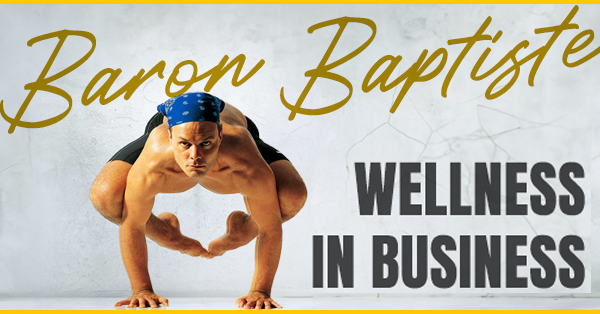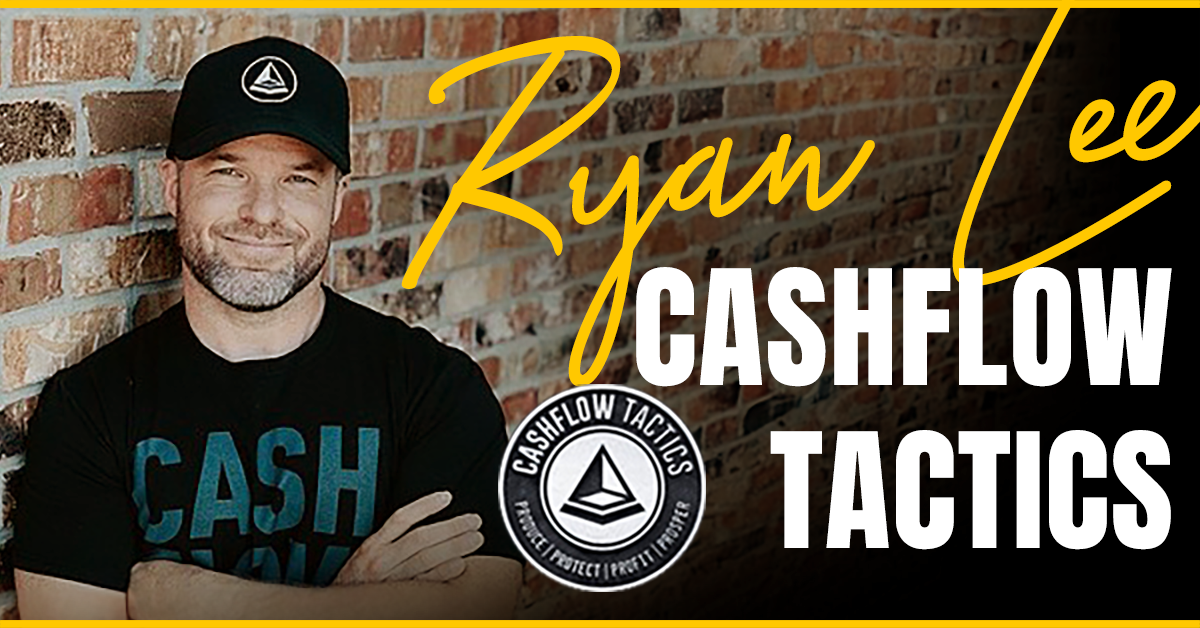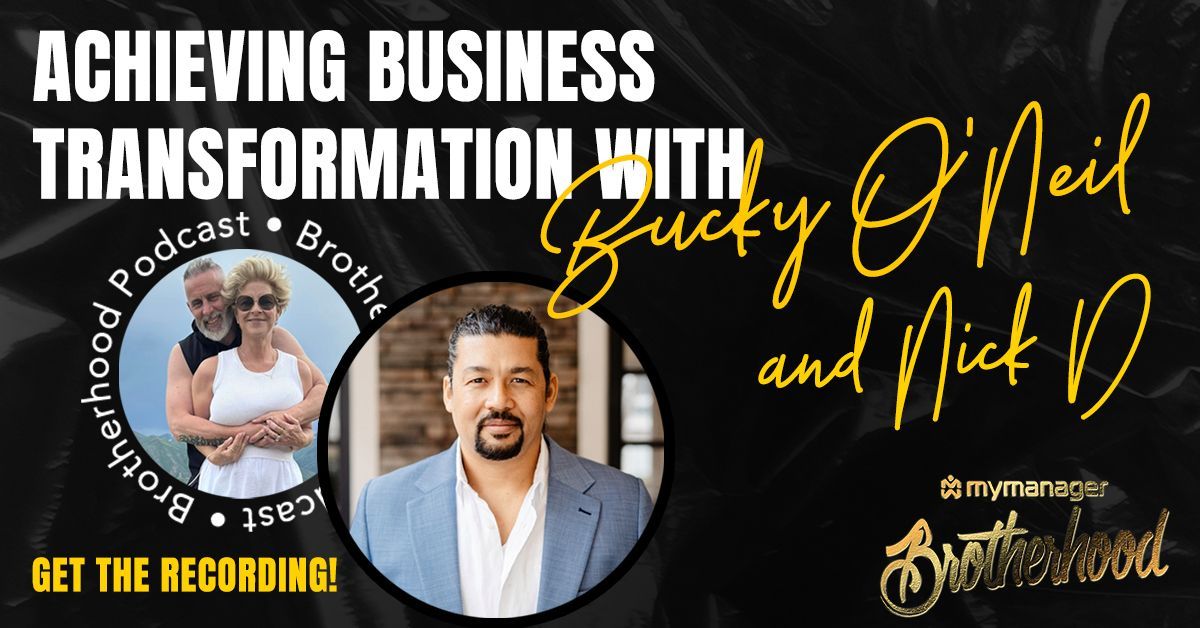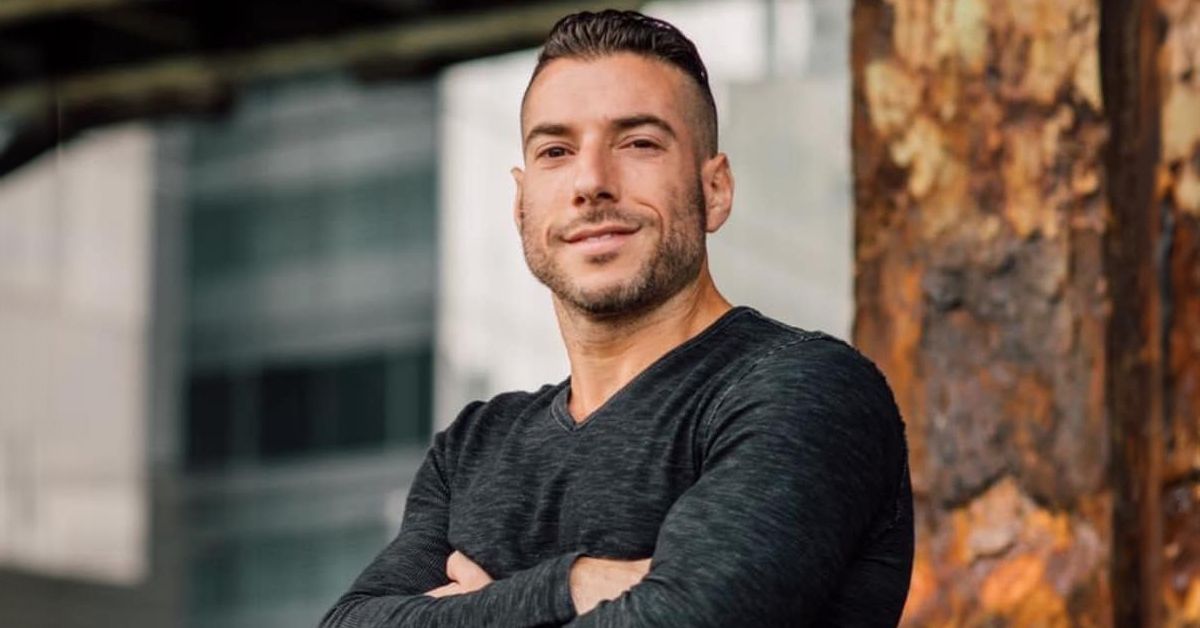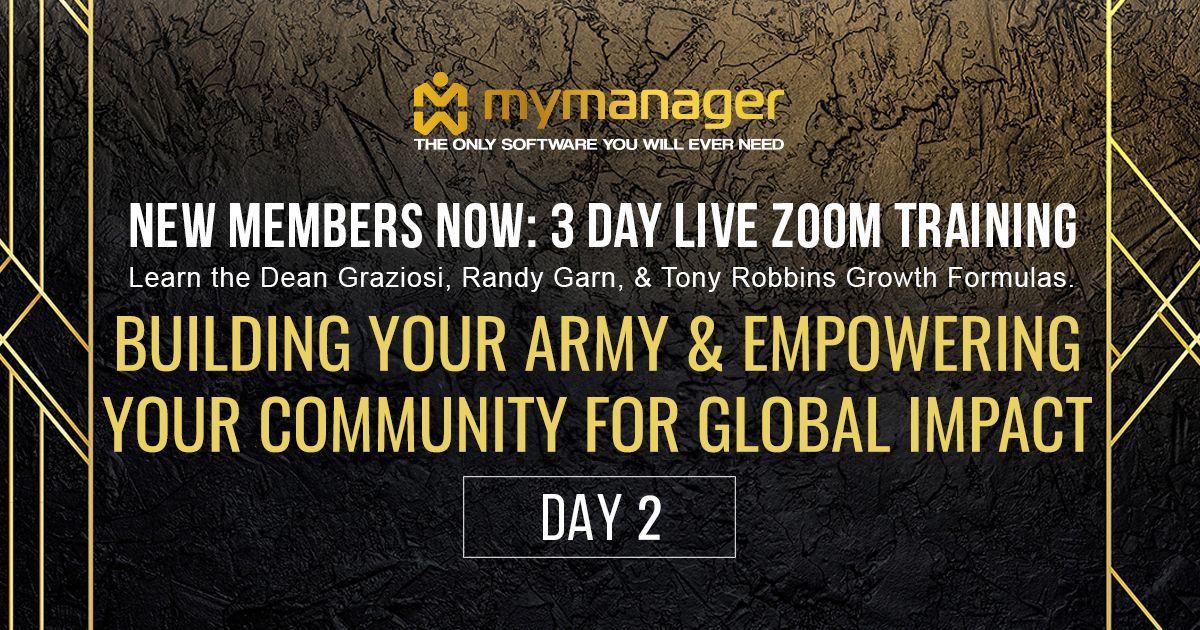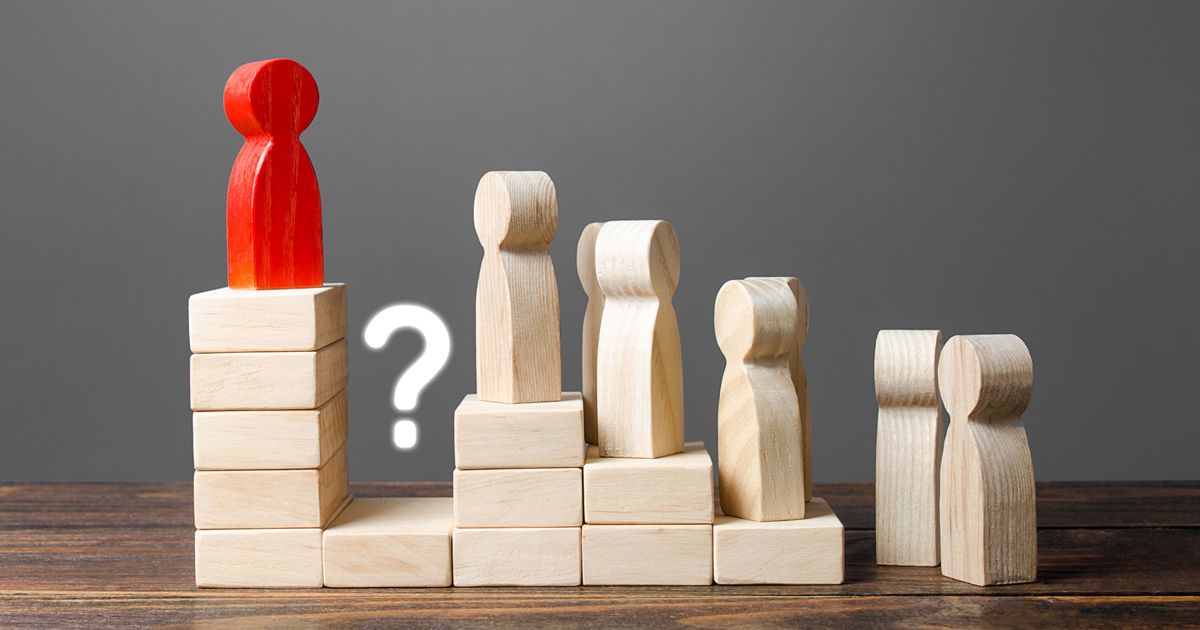Nick Dougherty's Martial Arts Mastery Blog

By Nick Dougherty
•
April 10, 2025
Let me get this out of the way… Your content doesn’t suck because you’re lazy. It sucks because no one ever gave you the damn blueprint. Until now. I’m Nick. I’m not a “guru,” and I’m not here to sell you some TikTok trend that dies in two weeks. I’m a marketing personal trainer for martial arts school owners — the real ones, the ones fighting every day to build something that matters. And I’m going to show you how to turn your broken content into a reality show that prints leads like clockwork. The Truth: You’re Not in the Martial Arts Business Anymore You’re in the attention business. And attention goes to the loudest, most consistent, most relatable brand in the room. Right now, there are little league coaches, youth pastors, and Zumba instructors outposting you… …because they’ve figured out something most martial arts schools haven’t: 🎥 Your content IS your perception. And your perception IS your business. If your social media looks like an afterthought… Your school feels like one too. The TV Show Framework That Changes Everything What if instead of random posts, you built a show ? Not fake. Not scripted. A raw, unfiltered, “this is what we stand for” kind of show. Here’s the formula I gave away in my recent training that had even Alex Hormozi , James Walker , and Boogie-Down Simpson saying: “This is the future.” Build Your Show: Daily themes. (So you’re never guessing what to post) Reels as commercials. (80/20 value-to-offer ratio) Instagram = Magazine cover. Make it clean. Stories = Behind the scenes. Make it human. Facebook = Your value vault. Email = Where you program their subconscious. AI = The assistant that never lets you down. This isn’t just strategy. This is how you create a movement around your brand . Final Thought (Read This Twice) Stop waiting for permission. There is no everybody. The schools that win from here on out will be the ones who show up bold , authentic , and relentless . You are the show. Now build it like you mean it.

By Nick Dougherty
•
March 31, 2025
Let me be brutally clear: People don’t cancel because they’re “busy.” They cancel because they forgot why it mattered. They lose the fire. They forget the fight. They drift — like sheep — back into the herd of mediocrity. And if you let that happen on your watch? You’re not running a martial arts school. You’re running a daycare with punching bags. But not anymore. Because today, I’m handing you the nuclear codes to flip the script on cancellation culture and install: ❌ THE UN-QUITTABLE CULTURE™ SYSTEM Not a pep talk. Not a strategy. A hardwired identity shift that makes quitting feel like betrayal. STEP 1: BECOME A MOVEMENT, NOT A MEMBERSHIP People don’t quit tribes. They quit gyms. They quit hobbies. But not tribes. 🔥 BUILD THE WALL OF THE COMEBACK. Student almost quit and stayed? Their name goes up. With pride. With a story. With proof. This wall becomes sacred. A symbol. A signal. You don’t abandon your tribe. You fight for it. STEP 2: THE INCEPTION SEED (DAY 1) Don’t say "Welcome." Say this: “Most students hit a wall around 30–60 days in. That’s normal. Life gets busy. Doubts creep in. But that’s the moment where everything changes — if you push through.” You’ve just future-proofed their commitment. You gave the pain meaning. They’ll remember this when the quitting voice shows up. STEP 3: THE MONTHLY LOOP Subject: "Do You Remember Why You Started?" "We do. And it’s working. Here’s what we’ve noticed: [Insert specific progress]." Attach a win. A photo. A quote from class. This triggers the original emotional WHY. Motivation fades. Vision sticks. STEP 4: THE DDS™ — DISAPPEARANCE DETECTION SYSTEM Two absences in a row? That’s DEFCON 1. Send this: "Hey [Name], I’m worried. Two missed classes usually means a slump is starting. Can I call you for 2 minutes today to help get you back on track?" You noticed. That alone may save them. STEP 5: THE "IF YOU QUIT NOW" LETTER They say they want to quit? You don’t process it. You print this and hand it to them: IF YOU QUIT NOW… You’ll miss the moment you were about to break through. You’ll teach your kid quitting is acceptable when life gets hard. You’ll walk away from the version of you that was finally showing up. This isn’t meant to be easy. It’s meant to change you. Then say: "Read this. If you still feel the same way, I’ll respect it." Most never go through with the cancel. STEP 6: THE COMEBACK CONTRACT Offer this: "Come back for 30 days. No pressure. If you still want out after that, I’ll process it and even give you a shirt for giving it one last shot." You look like the hero. And 95% of the time? They don’t quit again. STEP 7: PSYCHOLOGICAL PAYOFF SYSTEM Belts don’t keep students. Progress does. Ask: "What does success look like to you in 90 days?" Then: Track it. Measure it. Show them the finish line. Progress = Retention. Visible progress = Loyalty. STEP 8: THE WALL OF THE COMEBACK This is the heartbeat of the entire Anti-Cancel Culture. You want retention? Don’t post cheesy slogans. Post proof that real people felt weak and stayed anyway. 🔥 THE WALL OF THE COMEBACK 🔥 Names. Dates. Photos. Quotes. "I almost quit. I didn’t. Now I’m proud." This wall becomes part of your culture. A student walks by it and knows: "I’m not alone in this fight." This wall makes them believe staying is possible. Because others already did. 🔪 TWO REVOLUTIONARY IDEAS TO SEAL THE DEAL 🔋 IDEA #1: THE BLACK BELT BURNDOWN CEREMONY Once per quarter, do this: Burn a white belt in a fire pit Have black belts share their "I almost quit" story Recognize every comeback student in front of families 🌟 This makes perseverance public and powerful . 💥 It turns your school into a tribe of warriors. 🔋 IDEA #2: FUTURE SELF MIRROR METHOD Day 1: Record a video of the student saying why they joined and what they want in 6 months. Day 60: Show it to them. Let them see the fire in their own eyes. Remind them who they said they’d become. 💥 FINAL WORD FROM NICK D: If you let people quit without a fight, you’re not just losing students. You’re letting families lose the very thing they came to you for: strength, discipline, belief. Fight for them. Challenge them. Show them what they’re really made of. Because most of the world lets people quit. Be the one who doesn’t. 🔫 Want the full Anti-Cancel Swipe File with messages, scripts, posters, and email templates? Lock it in. Light it up. Let’s go to war on quitting. 💣 ANTI-CANCEL SWIPE FILE Messages, Letters, Comeback Offers & Posters By Nick D 1. ✅ Comeback Message (Text/SMS) Message: “Hey [Name], I noticed you’ve missed a few classes. That’s when most people lose momentum — and I’m not letting that happen to you. Can I give you a quick 2-minute call today to get you back on track?” 2. 📞 Parent Intercept Message Message: “Hey [Parent], quick note: when students miss two or more classes, it usually turns into quitting. But that doesn't happen on my watch. Can I give you a quick call today or tomorrow? I’ve got a plan.” 3. 📄 “If You Quit Now” Letter (Print or Email) Subject/Headline: IF YOU QUIT NOW… You’ll miss the moment you were about to break through. You’ll never know the potential sitting just beyond the struggle. You’ll teach your child that quitting is normal when things get tough. This program wasn’t meant to be easy. It was meant to change you . We’re fighting for your growth. Are you? 4. 🎯 Recommitment Bonus Offer Offer: 30-Day Recommitment Challenge Message: “What if you gave it just 30 more days? If you're still not feeling it, I’ll process the cancel — and even give you a free shirt just for the effort. But if you’re like most… you’ll be glad you stayed.” 5. 🧱 “No Quit Zone” Wall Poster (Print-Ready Text) 🔥 THE WALL OF THE COMEBACK 🔥 These are the names of warriors who were tempted to quit… but didn’t. They pushed through. They fought back. They stayed the course. This wall is proof: You’re always one choice away from a comeback. (Add names/photos monthly) 6. 🧠 Day 1 Inception Script “Just so you know — most students hit a wall in the first 30–60 days. They get busy, tired, overwhelmed. Some want to quit. That’s when the magic happens. Push through that wall — and life changes.” 7. 🔁 Monthly “Why You Started” Message Subject: Do You Remember Why You Started? Body: Because we do. And it’s working. Here’s what we’ve noticed: [Insert specific progress] [Attach photo or milestone] This isn’t about where you are. It’s about how far you’ve come .

By Nick Dougherty
•
March 10, 2025
Confidence is under attack. Not just for kids. Not just for adults. For everyone. 🚨 70% of kids today struggle with confidence and avoid challenges out of fear of failure. 🚨 Over 85% of adults admit they lack self-confidence in critical areas of life. The world isn’t getting easier. It’s getting softer. Too many people avoid hard things, avoid struggle, avoid discomfort. And because of that, they never grow. At your martial arts school, you know the truth: Confidence isn’t something you’re born with. It’s something you build. But how do you get people to realize they need to take that first step? How do you connect with leads in a way that makes them say, "I need this. My child needs this." ? Enter: The Confidence Assessment. 🔷 What is the Confidence Assessment? It’s a simple but powerful tool that helps kids (or adults) measure their confidence level and see where they need to improve. ✅ For kids: It identifies where they struggle—self-esteem, handling failure, social confidence, standing up for themselves. ✅ For adults: It exposes where confidence is holding them back—speaking up, taking action, leadership, self-belief. It’s not just a test. It’s a wake-up call. Because when people see their confidence score, they realize it’s time to do something about it. And that’s where YOU come in. 🔷 How Martial Arts Schools Can Use the Confidence Assessment to Attract More Students 1️⃣ Use it as a lead-generation tool Offer the assessment for free on your website and social media. Parents and adults take the test, and you follow up with solutions (aka your martial arts program). 2️⃣ Run an in-school Confidence Challenge Have students take the assessment before training. Track their progress and show how martial arts is building their confidence. Share testimonials and success stories online. 3️⃣ Use it for community outreach Run a Confidence Workshop at schools, community centers, or businesses. Give the assessment before the event, then show them how martial arts can fix their confidence gaps. 🔷 The Confidence Assessment in Action: A Step-by-Step Plan 1️⃣ Create a landing page where people can take the Confidence Assessment. 2️⃣ Promote it with social media posts, Reels, and emails (templates below). 3️⃣ Follow up with everyone who takes it —invite them in for a Confidence Consultation. 4️⃣ Use the results to start powerful conversations that lead to sign-ups. Simple. Effective. A no-brainer for your martial arts school. 📌 Social Media Posts to Promote the Confidence Assessment 🔥 Post #1 – The Confidence Crisis (For Kids & Parents) 📸 Image/Video: A kid looking unsure vs. a kid in a martial arts stance. 📝 Caption: 🚨 The Confidence Crisis is Real 🚨 Did you know 70% of kids lack confidence and avoid challenges? 💭 Does your child struggle with: ❌ Fear of failure? ❌ Low self-esteem? ❌ Holding back in social situations? Confidence isn’t something kids are born with. It’s something they build. That’s why we created The Confidence Assessment —a quick, powerful tool to measure where your child stands. 💥 Take the FREE Confidence Assessment now → [Insert Link] 🔥 Post #2 – The Adult Confidence Challenge 📸 Image/Video: A hesitant adult looking in the mirror vs. an adult training hard. 📝 Caption: How Confident Are You… Really? 🤔 Over 85% of adults admit they lack confidence in key areas of life. 💭 Do you: ❌ Struggle to speak up? ❌ Avoid stepping outside your comfort zone? ❌ Feel like fear holds you back from taking action? It’s time to fix that. Take The Confidence Assessment now and find out where YOU stand. 💥 Click here to take it FREE → [Insert Link] 📌 Email Templates to Promote the Confidence Assessment 🔥 Email #1 – The Confidence Crisis (For Parents) Subject: 🚨 70% of Kids Struggle with Confidence. Does Yours? Hey [First Name], There’s a Confidence Crisis happening right now. 🚨 70% of kids lack confidence and avoid challenges. 🚨 More kids today struggle with self-doubt than ever before. And here’s the hard truth… Confidence isn’t something kids are born with. It’s something they build. That’s why we created The Confidence Assessment. 💥 It’s a quick test to measure where your child stands and how to improve. If you want to know exactly where your child’s confidence gaps are—and how to fix them— click below to take the assessment now. 🔥 Take the FREE Confidence Assessment → [Insert Link] See you on the mats, Thu Doolittle NTA Taekwondo 🔥 Email #2 – The Adult Confidence Challenge Subject: How Confident Are You… Really? Hey [First Name], Over 85% of adults admit they struggle with confidence. 💭 Do you: ❌ Hold back from speaking up? ❌ Avoid challenges that push you outside your comfort zone? ❌ Feel like self-doubt stops you from reaching your full potential? Confidence isn’t something you either "have" or "don’t have." 🔥 It’s something you train. We created The Confidence Assessment to help you measure your confidence level—and show you exactly where to improve. 💥 Click below to take the assessment now. 🔥 Take the FREE Confidence Assessment → [Insert Link] See you on the mats, Thu Doolittle NTA Taekwondo 📌 Instagram Reel Framework to Promote the Confidence Assessment 🎬 Reel Title: "Is Your Confidence Holding You Back?" 📌 Hook (First 3 Seconds - MUST Grab Attention): ❌ "Most people think confidence is something you’re born with… It’s not. " 📌 Main Content: 🎥 Split-screen: Left side: A hesitant person (kid/adult) looking unsure. Right side: A confident martial artist standing strong. 🗣 Voiceover: 💬 "Confidence is trained, just like any skill." 💬 "But first, you need to know where you stand." 📌 Call to Action (CTA): 💥 "Take our FREE Confidence Assessment now and see where you stand. Click the link in our bio! " 🎬 Text Overlay: 📍 "Take the Confidence Assessment! Link in Bio." 🔥 Final Thoughts: This Confidence Assessment strategy is a GAME-CHANGER for martial arts schools. It doesn’t just attract leads —it starts meaningful conversations and shows people exactly why they need your program. ✅ Simple. Effective. Actionable.

By Nick Dougherty
•
March 10, 2025
“Fix Your Instagram. Get More Students. Dominate Locally.” Nick D here… Most martial arts studio owners are winging it on Instagram—and it shows. ❌ Random class pics with no strategy. ❌ Boring content no one engages with. ❌ No system for turning followers into students. That stops today. Here’s a 15-step execution plan to fix your Instagram and start using it as a real student-generating tool. 📌 PHASE 1: FOUNDATION (Days 1-3) 🔥 Fix the Core Issues FIRST. ✅ Step 1: Clean Up Your Profile Profile picture = Your logo or a high-quality image of your school. Bio = Clear, strong, and action-based. Example: 🚀 "Helping [Your City] Build Confident, Disciplined Kids 💪"🔥 "DM 'INFO' for a Free Trial Class!" Link in bio = A simple, mobile-friendly landing page (not a messy website). ✅ Step 2: Audit & Delete Weak Content Scroll your page. If it doesn’t represent your brand well—delete it. No low-quality photos, boring text posts, or generic stock images. ✅ Step 3: Define Your 5 Core Content Pillars Every post must fit into one of these: 1️⃣ Student Success Stories (Builds trust & authority) 2️⃣ Instructor Leadership Content (You = the expert) 3️⃣ Behind-the-Scenes Training (Shows what makes your school different) 4️⃣ Community & Culture (Why people want to be part of YOUR tribe) 5️⃣ Direct Call-to-Actions (Leads & trials—without sounding desperate) 📌 PHASE 2: BUILD ENGAGEMENT (Days 4-7) 🔥 Start Getting People to Pay Attention. ✅ Step 4: Post Your “Why Our School” Video 30-60 seconds: Show your students, energy, and unique vibe. End with a CTA: “DM me ‘TRIAL’ if you want your child to experience this.” ✅ Step 5: Post an Authority-Building Testimonial Parents trust other parents. Post a short video or text quote from a real student or parent. Use the caption: “If you want results like this, DM me ‘CONFIDENCE’ and let’s talk.” ✅ Step 6: Engage with Your Followers (Like, Comment, DM!) Instagram rewards engagement. Spend 15 minutes/day responding to comments & DMs. DM new followers: “Hey [First Name], thanks for following! What’s your biggest goal for your child in martial arts?” (Start conversations!) ✅ Step 7: Use Instagram Stories DAILY (Behind-the-Scenes Content) Show real training, parent testimonials, and daily energy in your school. Use polls & questions to get followers interacting: “Would you let your child spar in class? Yes/No” “What’s the #1 thing you want your kid to learn from martial arts?” 📌 PHASE 3: DOMINATE LOCALLY (Days 8-11) 🔥 Become the Go-To Martial Arts School in Your Area. ✅ Step 8: Use Local Hashtags & Location Tags Every post should have: 📍 Your city’s name (#[City]MartialArts, #[City]SelfDefense, #[City]Parents) 📍 Tag your gym location in every post! This boosts visibility. ✅ Step 9: Create an Instagram Highlight Reel for New Parents New to Your Page? They should see: 🔹 “Start Here” – Welcome + About Us 🔹 “Student Wins” – Success stories 🔹 “Behind the Scenes” – Class energy, instructor advice 🔹 “Free Trial” – How to sign up ✅ Step 10: DM & Engage with Local Businesses and Influencers Follow & interact with local businesses (schools, parent groups, sports teams). DM them: "Hey [Name], love what you’re doing! We’d love to do a community collab—interested?" 📌 PHASE 4: CONVERT FOLLOWERS INTO STUDENTS (Days 12-15) 🔥 Turn Engagement into Real Sign-Ups. ✅ Step 11: Drop an Offer Post (Urgency + CTA) Example Post: 🎯 “3 Free Classes for the Next 10 Parents Who DM Me ‘FOCUS’ Today! 🚀” Use an image of kids training hard or an instructor working with students. Make it LIMITED. Urgency drives action. ✅ Step 12: Post a “Common Martial Arts Myths” Video Example: “Myth: Martial arts makes kids violent. Reality: It builds self-control.” Parents need EDUCATION. This builds trust. ✅ Step 13: Run a Story Giveaway (DM Strategy) “Want to win a FREE trial class for your child? DM me ‘WIN’ and I’ll pick a winner tonight!” This fills your DMs with warm leads and triggers the Instagram algorithm to show your page to more locals. ✅ Step 14: Repost & Tag Every Student Who Posts About You If parents/students tag your school, share it to your Story immediately. Message them: “Thanks for sharing! Appreciate you!” (Creates loyalty + more engagement) ✅ Step 15: Announce Your Next “IG-Exclusive” Special Example: “🚨 IG-ONLY DEAL: 50% Off Our Starter Program for the Next 5 Sign-Ups! DM ‘START’ to Claim!” This keeps people checking your page for exclusive offers. 🔥 Execution Time: 💀 No excuses. No half-measures. If you execute this 15-step plan, your Instagram will be unrecognizable in 15 days. 📌 Next Step: Join the Instagram WAR ROOM Challenge If you’re serious about turning Instagram into a REAL student-generating tool, I’m running the Instagram WAR ROOM Challenge—5 days, live, on Zoom. This is the fastest way to dominate Instagram without wasting time or money.
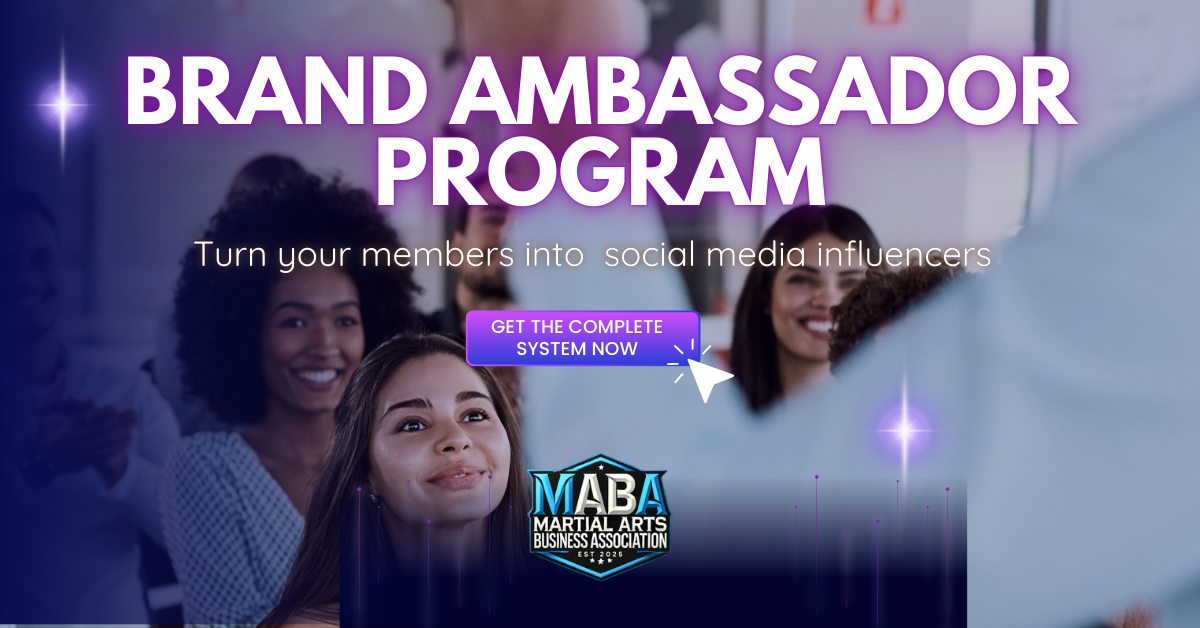
By Nick Dougherty
•
March 9, 2025
What is the Brand Ambassador Program? A 3-month, action-packed program designed to turn your students into your most powerful marketers . This initiative leverages their social media presence to drive referrals, increase engagement, and build a strong community around your martial arts school. Brand Ambassadors will be rewarded with exclusive perks , access to VIP training, and the prestige of representing your academy . 💥 More exposure. More leads. More students. 💥 📅 Program Structure: 3 Months to Elite Ambassador Status Month 1: Building Awareness & Engagement 🔹 Week 1: Orientation & Onboarding ✅ Official Program Announcement – Let all students and parents know about this exclusive opportunity . ✅ Selection Process – Choose students who are enthusiastic, engaged, and active on social media. ✅ Kickoff Event – Educate ambassadors on their mission, content ideas, and rewards. ✅ Private Group Setup – Create an exclusive Facebook/WhatsApp group for easy communication and training. 🔹 Weeks 2-4: Content Creation & Promotion ✅ Branded Hashtags & Templates – Provide custom studio-branded templates for Instagram, Facebook, and TikTok. ✅ Influencer Training – Teach ambassadors how to create high-quality, engaging content (videos, reels, testimonials, and more). ✅ Challenges & Engagement Boosters – Weekly themes like “Why I Train,” “Technique Tuesdays,” or “Meet My Coach.” ✅ Amplify Their Content – Repost the best ambassador posts across your official studio pages for added exposure. 🔹 Week 4: Evaluation & First Round of Rewards ✅ Top Ambassadors Recognized – Feature the most engaged ambassadors on your website & social media. ✅ Exclusive Perks Given – Free classes, private lessons, studio merch, or discounts on training gear. Month 2: Growth & Collaboration 🔹 Weeks 1-2: Social Media Takeovers ✅ Allow ambassadors to run your Instagram & Facebook stories for a day to showcase their journey. ✅ Host behind-the-scenes content – Ambassadors can share their favorite drills, competitions, or instructor insights. 🔹 Weeks 3-4: Ambassador Collaborations ✅ Pair ambassadors with instructors to create tutorials, “Ask Me Anything” sessions, or in-depth training breakdowns. ✅ Host a studio-wide contest – Encourage engagement with interactive posts, challenges, or referral bonuses . 🔹 Week 4: Rewards & Recognition ✅ Exclusive Training Access – Invite ambassadors to an invite-only VIP training session with the head instructor. ✅ Feature on Studio Platforms – Spotlight your best ambassadors on your studio website and social channels. Month 3: Brand Ambassadors for Life 🔹 Weeks 1-2: Official Ambassador Status ✅ Select top-performing influencers to become official studio Brand Ambassadors . ✅ Provide personalized discount codes & referral bonuses – Incentivize them to recruit new members . ✅ Give them exclusive studio-branded gear (custom shirts, hoodies, or gi patches). 🔹 Weeks 3-4: Community Event Leadership ✅ Host an Ambassador-Led Workshop – Let them run a mini-clinic, social event, or open house. ✅ Charity Event Collaboration – Have ambassadors organize a fundraiser or free self-defense seminar. 🔹 Final Week: Graduation & Elite Recognition ✅ Lifetime Rewards for Elite Ambassadors – Free training for a period, leadership roles, or event sponsorship. ✅ Invite them to future influencer opportunities – Seminars, competitions, or even paid sponsorships. How to Get Your Studio’s Ambassadors Started 1️⃣ Make it an Exclusive, Invite-Only Program – This creates a sense of prestige and urgency . 2️⃣ Provide Tools & Training – Give them content guides, templates, and hashtags to use. 3️⃣ Make It Fun & Competitive – Monthly leaderboards, engagement challenges, and prize giveaways. 4️⃣ Leverage Their Network for Referrals – Offer discounts, free gear, or private training for every new member they bring in. Social Media Promotion Posts for Your Studio 📢 Post #1: Want to Be a Martial Arts Influencer? We're looking for passionate students to become our next Brand Ambassadors! Get access to exclusive training, VIP perks, and social media fame while representing our academy! Comment "AMBASSADOR" below to apply! 🥋🔥 #JoinTheSquad #MartialArtsAmbassador 📢 Post #2: Get Rewarded for Training & Posting! Love martial arts? Love social media? Now you can do both AND get rewarded! Become an official Brand Ambassador and gain special privileges, discounts, and shoutouts from the studio! 🚀💪 #TrainHard #EarnRewards 📢 Post #3: Only 10 Spots Left! Our Brand Ambassador Program is almost FULL! Want in? DM us now before we close applications. Don’t miss this chance to get VIP access, custom gear, and FREE training perks! ⏳🔥 #AmbassadorSpotsFillingFast 📢 Post #4: Shoutout to Our Top Ambassadors! These students are CRUSHING it as studio influencers! Their dedication, training, and content are inspiring a whole new wave of martial artists! Tag your favorite ambassador below! 🏆🔥 #MartialArtsInfluencers #HardWorkPaysOff 📢 Post #5: The Future of Our Studio Starts Here! Our Brand Ambassadors are not just students… they’re the future of our school! Training hard, inspiring others, and setting the standard for excellence. Want to be part of this elite team? Applications open soon! 🌟💪 #LeadTheWay #MartialArtsFuture 30-Day Content Plan for Brand Ambassadors 💡 Worried about content creation? No problem. Give your ambassadors this 30-day content plan to follow! Week 1: Introductions & Studio Love 📸 Day 1: Post an action shot in class. 🎥 Day 2: Share a short video of your favorite technique. 📝 Day 3: Write a post about how martial arts changed your life. Week 2: Engagement & Community 📸 Day 7: Post a pic with your instructor. 🎥 Day 9: Try a "challenge move" and tag a friend to do the same. 🗣️ Day 10: Go live on Instagram & answer questions about your training. Week 3: Deep Dives & Social Proof 📸 Day 14: Post a before-and-after transformation pic. 🎥 Day 16: Record a tutorial breaking down a technique. 🎉 Day 18: Share a behind-the-scenes look at a fun class or event. Week 4: Lead Generation & Influence 📸 Day 22: Post a "Why I Train" story and tag the studio. 🎥 Day 25: Film a shoutout for a new student and welcome them to the academy. 🔥 Day 30: Post a final "Ambassador Wrap-Up" about what you’ve gained from the program. Make This Your Studio’s Secret Weapon! This Brand Ambassador Program turns students into marketers, social media into a lead machine, and training into a community movement . 📢 Who’s in? Let’s take your studio’s brand to the next level. 💥🥋 This optimized program makes it easy for studio owners to implement , gives ambassadors a clear path to success , and creates a marketing machine for referrals and engagement . Want custom graphics, landing pages, or email sequences to match this? Let me know, and I'll hook you up. 🚀🔥
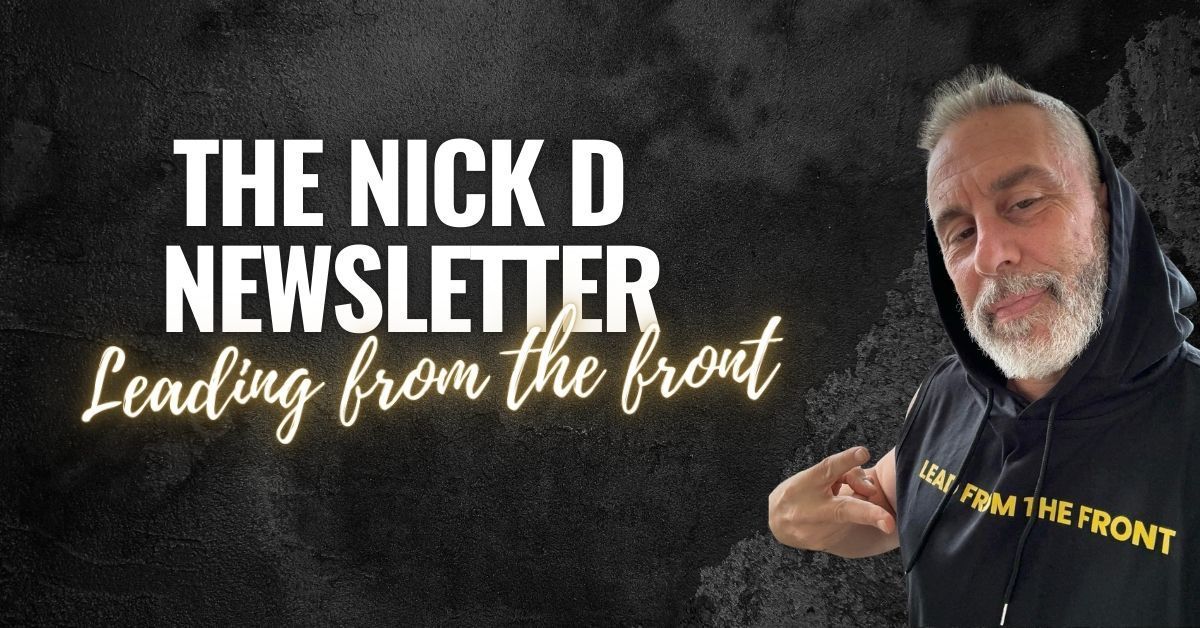
By Nick Dougherty
•
March 3, 2025
Referrals Don’t Come From Gimmicks They Come From RESULTS. This industry is backwards. 2-4-6 calls. PlayStation giveaways. Black Belt Club “upgrades.” Meanwhile, your competitors are running the same tired tactics… and wondering why they aren’t getting real growth. Here’s the truth: Referrals aren’t the problem. The way you’re doing them is. If you’re just throwing out passes, bribing students with cheap incentives, and hoping for the best—you’re playing the wrong game. Referrals come from experience. From transformation. From RESULTS. People talk about things that make an impact. They bring their friends to places that change them. So instead of chasing gimmicks, flip the script: Deliver undeniable results. Modernize your experience. Build a system that makes referrals natural, not forced. Your students want to bring people in. But not because of a giveaway. Because what you offer is too good to keep to themselves. Fix that first. And the referrals will take care of themselves. The “experience” of where I’m staying they don’t have to bribe me for referrals - I have shared dozen of IG stories And my friends Ross Kellin and Kristin Kellin are messaging me “We have to go back there with you guys”

By Nick Dougherty
•
March 3, 2025
This is hands down the greatest thing I’ve ever given away. Why? Because I’m obsessed with helping kids win. I know what it’s like to have zero confidence. To be surrounded by people who don’t believe in you. To second-guess every move because you don’t have someone pushing you to be better. And let’s be real… today’s world is even harder on kids. 🚫 Social media pressure. 🚫 Music & entertainment glorifying weakness. 🚫 No real role models leading by example. Confidence isn’t given, it’s built. And martial arts is the ultimate confidence machine —but most schools aren’t tapping into it the right way. 💥 That’s why I created the Make Kids Confident Again Enrollment System. It’s the complete before, during, and after system to get kids in the door and turn them into unstoppable, confident leaders. And for 3 days only —I’m giving it away for FREE. After that, it’s $999. ⚠️ Get instant access NOW before the clock runs out 🚀 Here’s what’s inside: ✅ BEFORE they join: No gimmicky offers—just real solutions parents & kids NEED before they even step foot in your school. ✅ DURING their training: A 6-week experience designed to blow their minds and make them confident FAST. ✅ AFTER they enroll: A rock-solid system that ensures families see the long-term value and stay for life. 💪 This is how we change the industry. No more weak marketing. No more random "specials." This is how you create impact. But you have 72 hours before this disappears. 👉 Get it now for FREE 🔥 Let’s make kids confident again.

By Nick Dougherty
•
March 3, 2025
The MABA Launch Call Highlights: The Game Has Changed The Time is Now If you’re asking when the best time is to take action, you’re already behind. The answer is NOW . That’s how we kicked off the Martial Arts Business Association (MABA) Launch Call —with a hard truth: waiting is losing . Nick D didn’t hold back. He shared a personal story, a dream about his father that hit deep. A reminder that excuses don’t build legacies—action does . His father told him, “I’m not you.” A moment of realization. Not everyone has the discipline to push through. Not everyone is willing to do what it takes. But if you’re reading this, you’re different. This call wasn’t just another Zoom meeting. It was a call to arms. A rallying cry for school owners who refuse to settle for outdated strategies, who are done with gimmicks, and who are ready to build a real movement. The Industry is at an Inflection Point Let’s be real— things aren’t the same anymore. Enrollment numbers aren’t what they used to be. Marketing that worked five years ago is DEAD. The consumer mindset has shifted. The old ways aren’t cutting it . Black Belt Clubs, referral “systems,” and discount-driven marketing? Trash it. If you’re still running the same promotions from 2019, you’re playing yourself. We’ve reached an inflection point —a moment where you either adapt and dominate or fade into irrelevance . And that’s why MABA exists. The MABA Movement: What We’re Changing 1️⃣ Upgrading Outdated Black Belt & Master Club Programs The old models are dead. We’re building new, high-value upgrade programs that actually make students want to stay long-term. 90-day execution plans to make your systems more effective. Higher retention, engagement, and revenue —no gimmicks needed. 2️⃣ Revolutionizing the Member Experience The intro process? Overhaul it. Pre and post-class rituals? Turn them into transformative moments. New members? Create an unforgettable first 100 days. If your school looks the same as every other school, you’re a commodity. And commodities don’t command respect—or premium pricing. 3️⃣ Creating Real Coaching Collaborations This virtual bootcamp is more valuable than any in-person event in the last five years . No fluff. No “inspiration” with no execution. Just raw, actionable strategies from killers in the industry . Leadership Council members like Aaron Hensley, Carlos Machado, Josh Smith, and more are dropping real-world tactics you can apply TODAY . The Future of Martial Arts Marketing: Be the Signal Nick D laid it out clearly: if no one knows who you are, your business is already dead. You are a TV show . Your brand is the network . And right now, most martial arts schools? Weak broadcast signal. 🚀 The Content Conversion Machine is the future. 🚀 Your marketing isn’t about offers anymore—it’s about MOVEMENTS. Referrals don’t come from gimmicks. They come from RESULTS & EXPERIENCES . You are the brand. You are the story. You are the movement. We are at war with outdated thinking . If your plan is to run another Black Friday special , you’re already losing the game . MABA Is Built for the Future—Are You? Here’s what you get when you commit to MABA: ✅ Weekly execution calls —real coaching, real strategy, no fluff. ✅ Monthly bootcamps —deep dives on what’s ACTUALLY working right now. ✅ Leadership Council access —collaborate with industry leaders. ✅ A resource library —everything you need to implement IMMEDIATELY. This isn’t just another coaching group. This is a WAR ROOM. Your Move You can keep doing what you’ve always done —and keep struggling. Or you can adapt, dominate, and win . The MABA movement isn’t for everyone. It’s for those who refuse to settle. If you’re ready to build a real business, real marketing, and real results—this is it. 📩 DM “MABA” to get in before the next call. 🚀 The time is NOW. Let’s go.

By Nick Dougherty
•
February 24, 2025
30 days ago, I took on a mission: launch MABA and dominate the first 100 days. Because mediocrity is the enemy, and greatness is the standard. Here's the progress report— how MABA is stepping up and leading martial arts businesses back to greatness: 1. Instagram Reels & YouTube Shorts Framework: Video is crushing it. Too many studios are leaving money and impact on the table. Not here. Missed it? Grab it here now. 2. First 100 Days Member System: Still doing the old 2, 4, 6 call system? That's ineffective. Old habits are weaknesses. Upgrade your approach. Get my First 100 Days Customer Shock System here. 3. First 45 Days Lead Nurture Plan: Calling leads once isn't enough. Repetitive messages won't cut it. This is the exact system I use at my Vibe Boxing gyms. Missed it? Get it here. 4. Kid Warrior 100-Day Transformation: Give unmatched value to current members and nurture leads who aren't ready yet. Value is victory. Access it now. But there's more—this was just the first 30 days: 5. 7 Ways to Promote Valentine's Day: Maximize seasonal opportunities. No excuses. Read the blog here. 6. The 5-Star Google Review System (Nicholas Cottolesse): Reviews are credibility. Build yours now. Get it here. 7. Marketing Message Makeover: Truth in messaging is strength. Fix yours. Download the document here. 8. Content Machine Webinar: Build your own content machine. Control the narrative. Watch now. Your support drives this mission forward. Tomorrow, I’ll outline what's next for MABA . Stay locked in.

By Nick Dougherty
•
February 16, 2025
A Martial Arts Studio’s Ultimate System for Leads & Members Why Every Studio Owner Needs This Most studios focus only on getting new students in the door —but what about those leads who aren’t ready yet? What about your current members who need extra motivation? The Kid Warrior 100-Day Transformation solves BOTH problems: ✅ Keeps your leads engaged until they’re ready to commit ✅ Provides insane value to current members to boost retention ✅ Positions your school as a leader in developing strong, confident kids This isn’t just another trial offer or short-term challenge. This is a full-spectrum transformation that helps kids build confidence, strength, and discipline—one day at a time. And the best part? You don’t have to do all the work —it’s already structured and easy to implement. 📅 Launches March 1st. Let’s build unstoppable kids. 🔥 The Ultimate 100-Day Breakdown 🔥 💥 More Confidence. More Discipline. More Strength. This isn’t just about kicking and punching. It’s about creating real, lasting change in kids —mentally, physically, and emotionally. Each phase builds on the last, giving kids a clear path to becoming their strongest selves. PHASE 1: The Foundation (Days 1-25) – Becoming a Disciplined Warrior 💡 Focus: Daily habits, mindset shifts, and physical strength Daily Warrior Activities: ✅ Morning Warrior Routine – Stretch, breathe, and move ✅ Warrior Reflection – Set a goal and do an act of kindness ✅ Martial Arts Move of the Day – Start with basics, build confidence ✅ Nutrition Challenge – Drink water first thing in the morning Weekly Warrior Missions: 🔥 Week 1: Respect & Responsibility – Chores challenge (earn points) 🔥 Week 2: Physical Toughness – Daily movement challenge 🔥 Week 3: Mental Toughness – No complaints challenge 🔥 Week 4: Community Warrior – Write a thank-you letter to a mentor 📢 Kickoff Event: The Warrior Pledge Ceremony – Kids & parents commit to the challenge PHASE 2: Strength & Resilience (Days 26-50) – Overcoming Challenges 💡 Focus: Pushing limits, teamwork, and mental focus Daily Warrior Activities: ✅ Accountability Check – Parents track daily progress ✅ Mental Focus Drill – Deep breathing & visualization ✅ 10-Minute Challenge – Increase endurance with bodyweight workouts ✅ Healthy Warrior Eating – No processed snacks Weekly Warrior Missions: 🔥 Week 5: Self-Control & Focus – One-minute stillness challenge 🔥 Week 6: Strength in Numbers – Partner training challenge 🔥 Week 7: Leadership Training – Teach a younger sibling or friend 🔥 Week 8: Warrior Service – Give back to someone without expecting anything 📢 Live Event: Family Fun Martial Arts Night – Invite families to train together PHASE 3: Mastering the Warrior Mindset (Days 51-75) – Unshakable Confidence 💡 Focus: Mental strength, fearlessness, and resilience Daily Warrior Activities: ✅ 5-Second Courage Drill – Face fears head-on ✅ 30-Minute Reading Challenge – Learn from warriors in history ✅ Daily Warrior Workout – Martial arts & bodyweight training ✅ Food Discipline Challenge – No fast food for the day Weekly Warrior Missions: 🔥 Week 9: Fearless Living – Conquer a personal fear 🔥 Week 10: Warrior Perseverance – Stick with a skill until mastered 🔥 Week 11: Gratitude Practice – Daily gratitude journaling 🔥 Week 12: Family Warrior Strength – No-device dinner challenge 📢 Live Event: Public Speaking Day – Kids share what they’ve learned PHASE 4: The Warrior’s Code (Days 76-100) – Leadership & Mastery 💡 Focus: Leading by example, handling pressure, and giving back Daily Warrior Activities: ✅ Power Pose Practice – Stand tall & confident every morning ✅ Advanced Mindset Training – Affirmations & breathing drills ✅ Unbreakable Strength Challenge – High-intensity workouts ✅ Ultimate Fuel Challenge – Plan & prepare a healthy meal Weekly Warrior Missions: 🔥 Week 13: Leading by Example – Help a younger student 🔥 Week 14: Handling Pressure – Stay calm in tough situations 🔥 Week 15: Giving Back – Organize a mini fundraiser 🔥 Week 16: Warrior’s Final Test – Showcase all learned skills 📢 Final Event: Kid Warrior Graduation – Celebrate the transformation! 3 Emails to Promote the Kid Warrior 100-Day Transformation 📩 Email 1 – The Ultimate Challenge for Kids Starts March 1st! Subject: A Stronger, More Confident Child in 100 Days? Yes, It’s Possible. Hey [First Name], What if your child could become more confident, disciplined, and focused in just 100 days? That’s exactly what the Kid Warrior 100-Day Transformation is designed to do. ✅ Daily mindset & movement challenges ✅ Community events to build teamwork ✅ At-home tasks to reinforce discipline The best part? You can start from home—FREE. We start March 1st —want in? Just reply "WARRIOR" and I’ll send you the details! [Your Name] 📩 Email 2 – 100 Days from Now, Will Your Child Be Stronger? Subject: 100 Days. One Transformation. Are You In? Hey [First Name], In 100 days , your child could be: 💪 More disciplined 🔥 More confident 🏆 More focused in school and life Or… they could stay the same. The Kid Warrior 100-Day Transformation gives them a clear, structured plan to grow. And it’s 100% free. Want to join? Reply “WARRIOR” today! [Your Name] 📩 Email 3 – Last Call! The Kid Warrior Challenge Begins Soon! Subject: Last Chance! 🚨 The 100-Day Challenge Starts Soon Hey [First Name], We’re closing registration for the Kid Warrior 100-Day Transformation soon! This free program will help your child: ✅ Build discipline & confidence ✅ Develop leadership skills ✅ Stay physically & mentally strong It’s FREE and starts March 1st . Reply “WARRIOR” now to reserve a spot! [Your Name] 5 SMS Messages for Leads 📲 1: Hey [First Name], we’re launching the Kid Warrior 100-Day Transformation on March 1st! It’s free & designed to build confidence & discipline. Want in? Reply “WARRIOR.” 📲 2: Parents love this! Our 100-day challenge helps kids become stronger, more disciplined, & more confident. Want details? Reply “WARRIOR.” 📲 3: 100 days from now, your child could be stronger, more confident, & focused . We start March 1st—reply “WARRIOR” to join for free! 📲 4: 🚨 Almost full! The Kid Warrior Challenge starts March 1st. Want in for free ? Reply “WARRIOR” before we close sign-ups! 📲 5: Would you be interested in a 100-day confidence & discipline challenge for your child? It’s free & starts March 1st. Let me know! Priming SMS Questions for Leads These questions help spark interest in the program before sending an official invite. ❓ 1. What’s the biggest challenge you want to help your child overcome—discipline, confidence, focus, or something else? ❓ 2. If you could improve one thing about your child’s mindset, what would it be? ❓ 3. Do you think confidence is something kids are born with or something they build over time? ❓ 4. Have you ever considered martial arts for your child, but weren’t sure if they’d enjoy it? ❓ 5. If there was a way to help your child become more disciplined and focused—without pressure—would you be open to learning more? 🚨 BONUS INVITE: Exclusive Studio Owner Call – Friday at 11 AM 🚨 Join my private coaching call this Friday at 11 AM and get: ✅ Plug-and-play email & text sequences ✅ Warrior Reward System for engagement ✅ The Complete Outline for the 100 Days This is how you turn cold leads into committed students. Let’s build stronger kids. GET YOUR GRAPHICS HERE

By Nick Dougherty
•
February 12, 2025
Valentine’s Day isn’t just about romance—it’s about connection, confidence, and commitment. Use this holiday as an opportunity to bring new students in with these low-cost, high-impact ideas that align with your martial arts studio’s mission. 1. “Heart of a Warrior” Parent & Child Free Class 💡 Concept: Promote bonding and discipline by inviting parents to train with their kids for free on Valentine’s Day. 🎯 Why It Works: Many parents want meaningful quality time with their kids. This class builds connection while showcasing your program. ✅ How to Execute: • Offer a one-day “Heart of a Warrior” family training session where parents and kids train together. • Make it interactive with fun drills, teamwork exercises, and life lessons on love through leadership and protection. • Give attending families a special offer if they enroll together. 2. “Bring Your Bestie” Buddy Pass 💡 Concept: Offer existing students a free pass for their friend to train with them for one week. 🎯 Why It Works: Friends training together increases commitment and fun, leading to a higher retention rate. ✅ How to Execute: • Give out limited-time “Bestie Buddy Passes” leading up to Valentine’s Day. • Create a friendly competition where the pair with the most classes attended wins a small prize (sticker, wristband, etc.). • End the week with a Bestie Belt Challenge—a fun drill where they help each other succeed. 3. “Protect Your Loved Ones” Self-Defense Seminar 💡 Concept: Host a free community self-defense workshop themed around protecting the people you love. 🎯 Why It Works: This empowers parents, kids, and couples, showing that martial arts isn’t just about fighting—it’s about keeping loved ones safe. ✅ How to Execute: • Keep it basic and engaging (situational awareness, escape drills, etc.). • Promote with “Who Would You Protect?” messaging—have people tag loved ones to attend together. • Offer attendees a discounted membership if they enroll as a duo (parent/child, siblings, friends). 4. “Love Yourself, Train for Free” Challenge 💡 Concept: Focus on self-love and self-improvement with a 7-day free challenge for new students. 🎯 Why It Works: February is prime time for goal-setting and personal development, especially after failed New Year’s resolutions. ✅ How to Execute: • Challenge runs for one week, including one free class and a simple at-home challenge (push-ups, mindfulness, journaling). • Use a special challenge tracker—those who complete all tasks get a free trial extension or discounted enrollment. • Promote the idea that “the best Valentine is YOU”—train for self-confidence and discipline. 5. “Power Couples” Valentine’s Day Sparring Event 💡 Concept: Create a fun couples event where partners train together in a lighthearted martial arts class. 🎯 Why It Works: Couples who train together stay together! This is a fun, unique date idea that gets them hooked on training. ✅ How to Execute: • Offer a free couple’s class with basic partner drills, pad work, and a mini-competition. • Keep it light and fun, adding partner teamwork exercises like helping each other perfect a kick. • Offer a discounted rate for couples who sign up together (or let one enroll and their partner train for free for a month). 6. “Warrior’s Heart” Valentine’s Day Card Giveaway 💡 Concept: Create custom martial arts-themed Valentine’s cards for students to hand out to their friends. 🎯 Why It Works: It’s an organic referral strategy—students naturally invite friends while sharing something fun. ✅ How to Execute: • Print simple custom cards that say “Train with me for FREE!” and include a guest pass. • Have kids hand them out at school, to teammates, or at other activities. • Offer a raffle entry for every friend that redeems a pass. 7. “Love the Journey” Social Media Giveaway 💡 Concept: Run a social media giveaway where people share what they love about martial arts for a chance to win a free month of training. 🎯 Why It Works: Encourages engagement and word-of-mouth marketing while getting new prospects interested. ✅ How to Execute: • Post: “Tell us what you LOVE about martial arts in the comments for a chance to win a free month!” • Require them to tag 2 friends (expands your reach). • Pick one winner at random, but offer all participants a limited-time discount to join. Final Thought: The Key is Engagement, Not Cost GRAB YOUR GRAPHICS HERE

By Nick Dougherty
•
February 11, 2025
Why the First 100 Days Matter The first 100 days of a new student’s journey will determine whether they become a lifelong member or just another drop-off. The goal is to blow their minds at every step—showing them they made the right decision, reinforcing their commitment, and ensuring they experience everything they were promised as a lead. This isn’t just onboarding. This is a full-blown experience designed to create unstoppable loyalty. PHASE 1: THE IMMEDIATE IMPACT (Days 1-7) Objective: Make them feel like they joined something special. ✅ Day 1: The Red Carpet Welcome Personalized welcome video from the head instructor. Studio tour if not already given. Exclusive "Welcome to the Family" package (shirt, wristband, or special badge). Immediate invite to the Private Member Community (Facebook group, WhatsApp, etc.). First class follow-up: "How was your first session? Anything we can help with?" ✅ Day 2-3: The Commitment Reminder Send an email/SMS reminding them WHY they joined and the transformation ahead. Video of success stories from students just like them. Assign an accountability partner (a senior student or coach check-in system). ✅ Day 4-7: Reinforce Their Decision "Your first week down! Here’s what’s next!" email with milestones ahead. Share a "What to Expect in Month 1" roadmap. Offer a personalized challenge (ex: "Earn your first stripe by Day 30"). Midweek check-in from an instructor: "How are you feeling so far?" PHASE 2: CREATING MASSIVE VALUE (Days 8-30) Objective: Show them they’re getting MORE than they expected. ✅ Day 8-10: The First WIN Challenge Encourage them to share their experience in the private group. Offer their first milestone challenge (ex: "Show up 3 times this week = reward!"). ✅ Day 14: Shock & Awe Gift Surprise them with a free training resource, exclusive content, or VIP access to a special class. "We appreciate you! Here’s something extra for your commitment." ✅ Day 21: Unlock the Next Level First milestone review (personal feedback on progress). Reminder of why they started. Personal invite to something exclusive (a seminar, VIP event, or extra class). ✅ Day 30: "Your First 30 Days – Look at You Now!" A personal message celebrating their 30-day achievement. Highlight growth, progress, and improvements. "What’s Next?" preview of their next 30 days. A customized training plan for their next month. PHASE 3: BUILDING STRONG CONNECTIONS (Days 31-60) Objective: Deepen their ties to the community and future vision. ✅ Day 35-40: Invite-Only Challenge Special event or seminar for new students only. A buddy pass to bring a friend/family member. "Training isn’t just about the body—it’s about the tribe!" ✅ Day 45: Personal Progress Call 1-on-1 progress check-in. Adjust training goals based on feedback. "Here’s where you’re crushing it! Here’s where we’ll level up!" ✅ Day 50-55: Leadership Exposure Introduce them to a senior member or coach for a mentorship-style talk. "You’re past the beginner phase—time to start thinking bigger!" ✅ Day 60: The Family Bonding Experience Host a "Bring Your Family to Class" session. Strengthen outside support from their personal circles. Cement their feeling that they’re part of something bigger. PHASE 4: CEMENTING THEIR FUTURE (Days 61-100) Objective: Transform them from a student into a lifelong warrior. ✅ Day 65-70: "Why I Train" Reflection Have them write or record a video on what martial arts has done for them so far. Post in the community group to inspire others. ✅ Day 75: Special Advancement Opportunity A unique training opportunity (early testing invite, exclusive sparring session, etc.). "Not everyone gets this. You’ve EARNED it." ✅ Day 85-90: The Next-Level Commitment Offer an upgraded membership, private coaching, or leadership path. "You’re no longer just starting out. It’s time to level up!" ✅ Day 100: "You Made It – What’s Next?" Celebrate their journey and cement long-term retention. Special gift, recognition, or badge of honor for completing 100 days. Personal invite to become a mentor for new students . "You’re no longer a new student. You’re a part of this for LIFE." Why This Works 🔥 Most gyms & studios focus only on getting members, NOT keeping them. This system ensures they feel valued, engaged, and constantly progressing. 🔥 People don’t quit when they’re deeply connected to the community. These first 100 days create that connection. 🔥 By constantly reinforcing the value, members won’t second-guess their decision. Instead, they’ll be telling their friends and family to join! This isn’t just an onboarding process—it’s customer shock & awe. The result? More loyalty, fewer cancellations, and a thriving studio. YOUR NEXT MOVE: Implement this 100-day shock system in your studio and start turning new leads into lifelong warriors. 👊🔥

By Nick Dougherty
•
February 11, 2025
Why Most People Fail at Reels Creating Reels isn’t hard. Staying organized, consistent, and strategic is where most fail. This framework will help you build an effective Reels system that keeps your content sharp, engaging, and results-driven. 1. The Doc of Truth – Your Reels Blueprint Before making content, define your core message so every Reel aligns with your brand. Answer these questions: What is the purpose of your videos? What do you stand for? What do you stand against? Where are you taking people? What makes you unique? Who can back up what you say? What are people getting from you? Would anyone share your video? When they go to your IG page, can you turn a glance into a stare? Is there an easy way for new followers to get started? 2. Who Is Making the Reels? This is your TV show. Think about: Who is behind the production? It’s not about volume—it’s about context and clarity. Thumbnails should stand out and look unique. 3. Make 7-10 Reels at a Time Batch content creation to stay ahead. Then distribute across platforms. 4. One-Take vs. Multiple Takes One-take videos = Fast, raw, real. Multiple takes = More polished, but more time-consuming and expensive. 5. You Can’t Afford to Make Them Yourself It takes too long to shoot, edit, and post everything solo. Hire a content team or use a streamlined system. 6. Look Like a Pro High-quality visuals and sound matter. Keep branding consistent across Reels. 7. Every Video Should Follow a Framework Use proven formulas to make Reels engaging and effective. 7 Reasons Your Business Needs Reels More Reach: Instagram favors Reels, pushing them to new audiences. Higher Engagement: Short-form video captures attention faster. Better Brand Trust: Video builds deeper connections than images. Lead Generation: Reels turn viewers into followers, then customers. Algorithm Boost: IG rewards accounts that consistently post Reels. Shareable Content: Easy for followers to spread your message. SEO & Discoverability: Reels show up in search results, getting you found faster. 5 Other Ways to Use Reels & Where to Distribute Post to Facebook Reels – Expands reach to another massive audience. Upload as YouTube Shorts – Capitalize on YouTube’s push for short-form content. TikTok Reposts – Repurpose Reels onto TikTok for more engagement. Website Integration – Add Reels to your website to boost credibility. Email Marketing – Embed Reels in emails to keep subscribers engaged. 🔥 10 Instagram Reels Frameworks (Used by Top Creators) These frameworks are designed to grab attention, drive engagement, and increase reach . Hook → Teach → CTA (Call to Action) Start with an attention-grabbing question or statement. Teach a valuable tip in a concise way. End with a CTA (e.g., “Follow for more!” or “Comment below!”). Before & After Transformation Show a "before" state (struggling with a technique, fitness level, or skill). Transition to the "after" (mastering the technique, improvement, or success story). Challenge-Based Reels Introduce a martial arts challenge (e.g., “Try this kick combo!”). Show how to do it. Invite viewers to try and tag your studio. Behind-the-Scenes (BTS) Content Give a sneak peek into classes, instructor prep, or student training. Keep it raw and engaging (students sweating, sparring, celebrating wins). Reaction or Duet-Style Reels React to trending martial arts clips, fails, or highlights. Add your expert commentary or humor. Fast-Paced Montage with Music A mix of training shots, sparring, and students in action. Use high-energy music and quick transitions. “Mistakes to Avoid” Format Show a common mistake in martial arts. Explain why it's wrong. Demonstrate the correct way. “POV” (Point of View) Style Example: “POV: You just signed up for your first martial arts class.” Show the experience from a new student’s eyes. Storytelling (Personal Journey or Student Testimonial) Share a powerful transformation story (yours or a student’s). Use captions or voiceover to tell the story. “Listicle” (X Tips in X Seconds) Example: “3 Mistakes That Are Holding Back Your Kicks” Quick, informative, and engaging. 🥋 10 Instagram Reels Topics for Martial Arts Studio Owners These topics are designed to attract new students, engage the community, and build authority . “Why Every Kid Should Learn Martial Arts” Benefits like discipline, confidence, and self-defense. “3 Self-Defense Moves Everyone Should Know” Demonstrate easy-to-learn techniques. “How to Throw a Perfect Kick (Common Mistakes)” Teach proper form in an engaging way. “What to Expect in Your First Martial Arts Class” Ease the nerves of potential students. “My Biggest Martial Arts Fail (And What I Learned)” Share a personal or funny moment to build relatability. “Best Warm-Up for Fighters & Martial Artists” A quick and effective warm-up routine. “Student of the Month Highlight” Celebrate a student’s progress and dedication. “The #1 Myth About Martial Arts (Debunked)” Address common misconceptions like “Martial arts is just for fighters.” “How Martial Arts Can Help You in Real Life” Talk about confidence, focus, and discipline. “Funniest Things We Hear as Martial Arts Instructors” Share hilarious questions or comments from students. Final Thought Reels are non-negotiable for business growth. Stay consistent, follow the framework, and use Reels strategically to attract, engage, and convert your audience across multiple platforms. Get filming and start winning! 🎥🔥

By Nick Dougherty
•
October 24, 2024
Discover how martial artist Jamie Colleen Miller overcame domestic abuse, homelessness, and adversity to find empowerment and inspire others. Hosted by Nick D on the Brotherhood Podcast, Jamie shares her incredible journey of resilience, motherhood, and the transformative power of martial arts.

The Power of Copywriting and Content Creation for Your Business: Lessons from Nick D and Alex Ormaza
By Nick Dougherty
•
September 27, 2024
Nick D and Alex Ormaza share strategies on content creation, event marketing, and building a community through the Kid Warrior Movement. Learn to engage your audience with copywriting skills.

By Nick Dougherty
•
September 4, 2024
Discover powerful social media strategies from Danny Seliger, a 22-year-old entrepreneur and founder of Brandsharks, as he shares tips on Instagram, YouTube, and personal branding for martial arts school owners. Learn how to build a community, engage parents, and grow your school through consistent, authentic content.
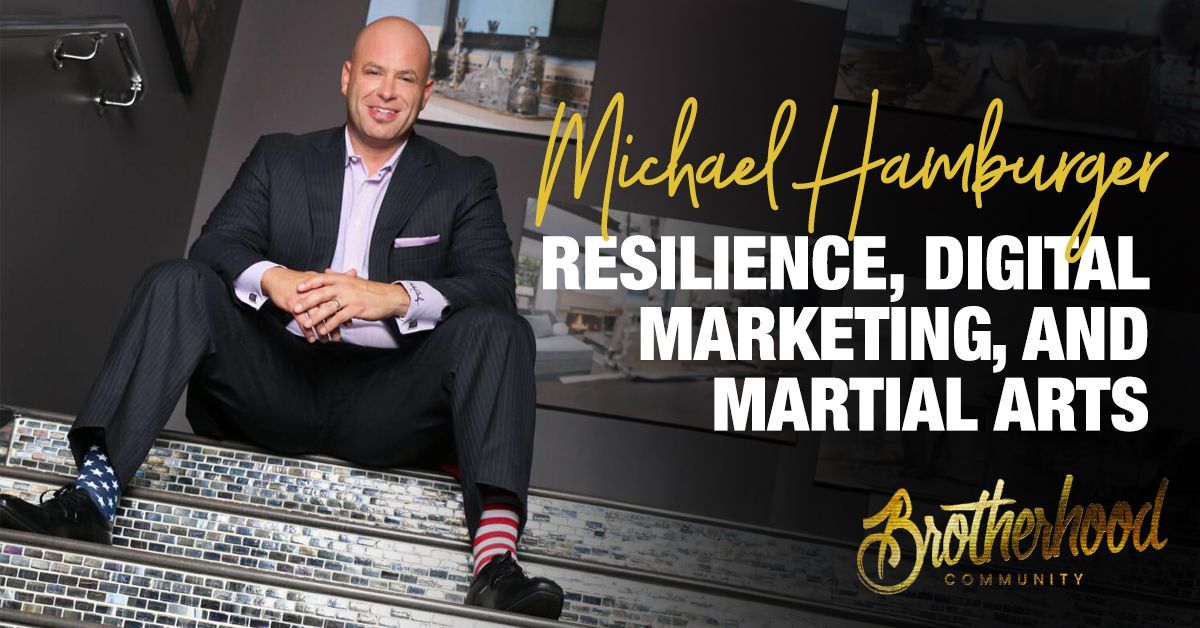
By Nick Dougherty
•
August 8, 2024
Discover Michael Hamburger's inspiring journey from his roots in Atlanta to building a successful digital marketing agency. Learn about his family's resilience, martial arts passion, and insights into digital marketing for businesses, including gyms and martial arts schools.
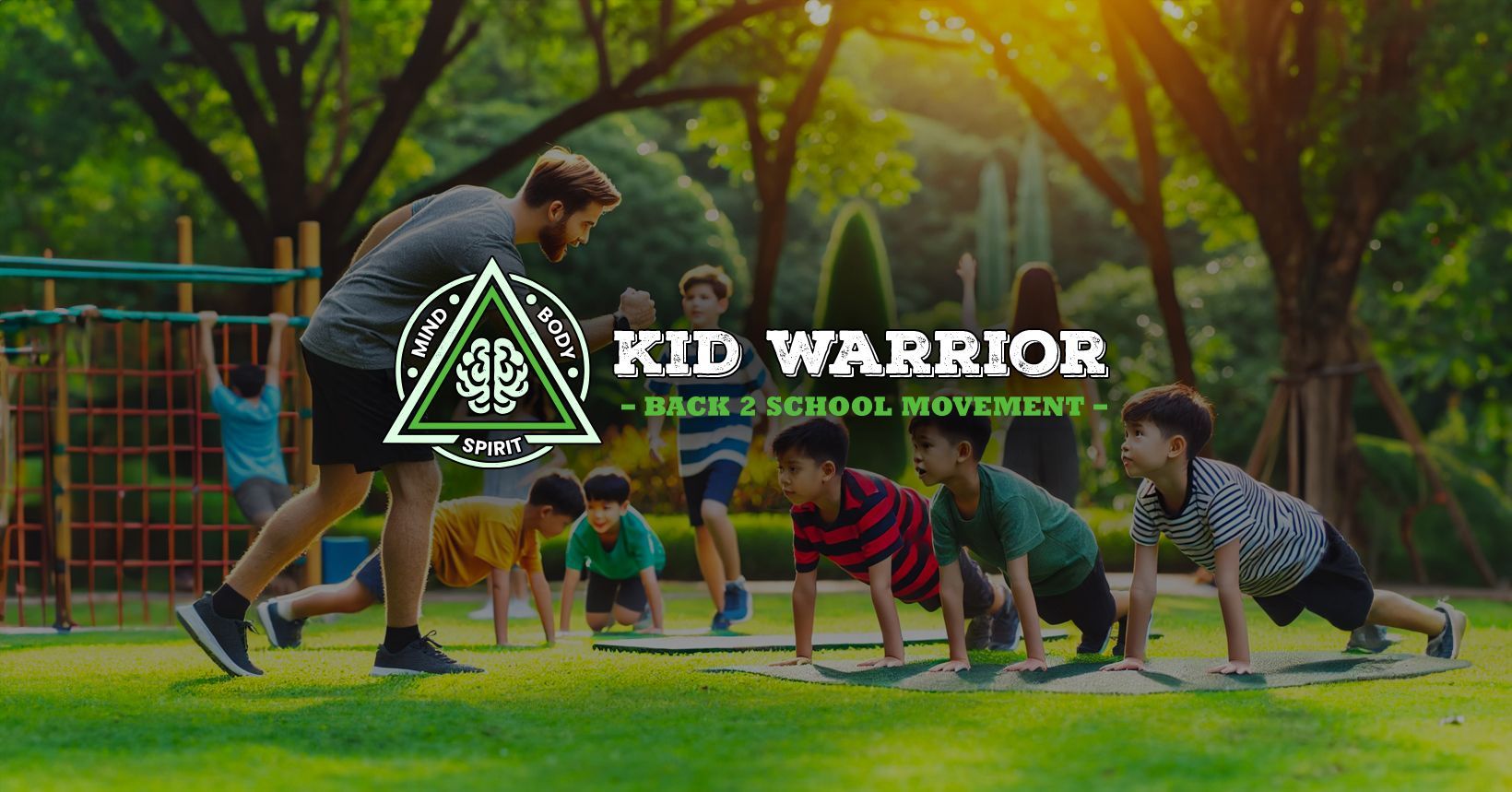
By Eric Harris
•
July 10, 2024
TL;DR: Discover how the Kid Warrior back-to-school movement focuses on authenticity, resilience, and building a strong community. A Journey of Transformation and Community Today, I'm really excited to see so many familiar faces and some new ones too. Our brotherhood is growing, and it's amazing to see leaders like Jason Griffin here, who truly lead from the front. We're talking about something crucial today: the Kid Warrior back-to-school movement. This isn't just a 30-day journey; it's a movement that embodies authenticity, resilience, and community. The Birth of the Brotherhood Let me share a bit about where this all started. I had a tough time growing up, especially with my faith. I went to a small Catholic school and had some pretty rough experiences. I questioned my beliefs, and when I asked for a sign, a bird hit the window. Instead of support, I was ridiculed by a priest. This pushed me away from religion for a long time. Fast forward to years later, I met Randy Garn, a man who never gave up on me. He kept sending me messages about faith and never asked for anything in return. His dedication inspired me. Randy taught me to do as much as you can for as many people as you can without expecting anything in return. Leading from the Front Randy's persistence led me back to faith. About three months ago, I was baptized, and it was a transformative experience. I realized the importance of leading from the front, not just in faith, but in all aspects of life. This is what the Kid Warrior back-to-school movement is all about. We're here to build a community, a brotherhood, where we support each other and lead by example. This movement is about more than just marketing; it's about creating a sense of unity and purpose. Creating a Movement Movements beat marketing every day. When you meet someone who truly believes in their mission, it resonates more than any discount or special offer ever could. Our movement is built on four core values: leading from the front, being the example, staying ahead, and fostering a sense of brotherhood. 1. Leading from the Front: Are you leading by example? When people look at you, do they see someone who practices what they preach? This is crucial in building trust and authenticity. 2. Being the Example: Your actions speak louder than words. Whether it's demonstrating a technique in class or living a healthy lifestyle, you need to be the example for others to follow. 3. Staying Ahead: Life is full of challenges, but it's about how you handle them. Embrace adversity and come out stronger on the other side. 4. Brotherhood: We support each other. This isn't just about individual success; it's about lifting each other up and creating a community that thrives together. Overcoming Challenges Today's world presents many challenges, from mental health issues to the victim mindset. Kids are glued to their phones, facing depression, and struggling with self-discipline. Our movement addresses these issues head-on, offering a positive and proactive approach to personal growth and resilience. 1. Mental Health: Kids need guidance to navigate the digital world and find balance in their lives. 2. Nutrition and Health: Fast food is rampant, leading to obesity and other health issues. We promote healthy lifestyles and physical fitness. 3. Role Models: Kids need positive role models. They look up to influencers on social media, but we need to show them real-life examples of leadership and integrity. 4. Education and Accountability: Schools are failing to hold students accountable. We need to step in and provide the support and structure that kids need to succeed. The Power of Storytelling Storytelling is a powerful tool. It connects us on a deeper level and inspires action. Share your personal stories and experiences. Show your community that you're in this with them, leading by example and overcoming challenges together. Building the Kid Warrior Community This movement isn't just about attracting new members; it's about engaging and empowering the ones we already have. Start by involving your current students and parents. Gather feedback, understand their needs, and build your message around that. 1. Document of Truth: This is your blueprint. It involves deep reflection and candid feedback from your team and community. It's an ongoing process that evolves over time. 2. Movement Emails and Conversations: Communicate with your community. Share your core values, ask for their input, and involve them in the process. 3. Accountability Reports: Encourage students and parents to track their progress. Celebrate their wins and milestones to keep the momentum going. Marketing with Authenticity Traditional marketing focuses on offers, deals, and discounts. But our approach is different. We lead with authenticity and a genuine desire to help. This resonates more with people and builds lasting relationships. 1. Priming and Warm-Up Content: Before you sell, start conversations. Share statistics and insights that highlight the issues your movement addresses. 2. Engaging Content: Use images, stories, and real-life examples to connect with your audience. Show them the impact of your movement and how they can be a part of it. 3. Community Engagement: Get involved in local events, schools, and organizations. Show your community that you're committed to making a positive impact. Launching the Kid Warrior Program The Kid Warrior back-to-school program is a comprehensive approach to building confident, resilient leaders. It includes daily challenges, workshops with successful entrepreneurs, and community engagement activities. 1. Daily Empowerment Challenges: Activities that kids can do at home and school to build their mind, body, and spirit. 2. Interactive Workshops: Give your students access to successful entrepreneurs and coaches who can inspire and guide them. 3. Community Activities: Encourage kids to get involved in their communities, helping others and building a sense of purpose. 4. Accountability System: Track progress and celebrate achievements to keep kids motivated and engaged. Building a Brighter Future: Leading with Community, Excellence, and Support The Kid Warrior back-to-school movement is about more than just education. It's about creating a community where everyone supports each other, leads by example, and strives for excellence. Together, we can build a brighter future for our kids and our communities. Join us in this journey. Let's lead from the front, inspire change, and make a lasting impact. Together, we are unstoppable.

By Eric Harris
•
June 27, 2024
Unleashing Independence: A 4th of July Campaign for Martial Arts Studios As we gear up to celebrate the 4th of July, it's time to embrace the true essence of independence through the power of martial arts. Join us in a campaign that aims to unite our community, promote wellness, and remind us of the values that martial arts instill. Let's explore how discipline, strength, and unity play a crucial role in achieving true independence. Embracing Independence Through Martial Arts As we gear up for the upcoming 4th of July celebrations, I am thrilled to share with you an exciting campaign that focuses on the powerful combination of martial arts and community unity. This campaign is not just about fireworks and barbecues; it's about embracing the core values of discipline, strength, and unity that martial arts instills in us. By delving into the essence of martial arts, we are setting the stage for a unique and meaningful Independence Day experience. It's more than just a campaign; it's a movement towards celebrating independence in its truest form. Setting the Stage for a 4th of July Campaign Our 4th of July campaign for martial arts studios is designed to go beyond the traditional festivities. We aim to create an environment where individuals come together to not only celebrate but also to grow physically, mentally, and spiritually through the practice of martial arts. Through a series of engaging activities and events, we will encourage participants to explore the depths of their potential, pushing boundaries and embracing challenges with the same resilience that our nation's forefathers exhibited. Highlighting the Values of Discipline, Strength, and Unity At the core of martial arts lie three fundamental values: discipline, strength, and unity. These values are not just words; they are principles that guide us in our journey towards personal growth and community cohesion. Discipline teaches us the importance of consistency and dedication, enabling us to overcome obstacles and achieve our goals. Strength goes beyond physical prowess; it encompasses mental fortitude and emotional resilience, empowering us to face life's challenges head-on. Unity reminds us that we are stronger together, fostering a sense of belonging and camaraderie that transcends individual differences. As we delve deeper into the world of martial arts, we will uncover the profound impact these values have on our lives, shaping us into better individuals and fostering a sense of collective purpose. Kickoff Event: Stars, Stripes, and Strikes As part of the 4th of July campaign for martial arts studios, the Kickoff Event titled 'Stars, Stripes, and Strikes' is set to be a spectacular celebration of independence through the art of martial arts. This event aims to bring our community together, promote health and wellness, and embody the values of discipline and unity that martial arts stand for. The event will feature a range of activities to engage and inspire attendees. From martial arts demonstrations showcasing skill and technique, to open mat sessions inviting participants to experience the art firsthand, and patriotic ceremonies honoring the history and values of our nation, there will be something for everyone to enjoy and appreciate. One of the highlights of the Kickoff Event will be the presence of special guest appearances. These guests, which may include local veterans or martial arts experts, will share their stories, inspire the audience with their journeys, and educate attendees on the importance of discipline, strength, and unity in achieving true independence. By incorporating these elements into the event, we aim to create a memorable and impactful experience for all who join us in celebrating Independence Day through the lens of martial arts. It's a time to reflect on the values that define us as a community and as individuals, and to recognize the power of martial arts in shaping not just our bodies, but our minds and spirits as well. Weekly Challenges Leading Up to July 4th As we gear up for the July 4th celebrations, our martial arts studio is buzzing with excitement and anticipation. The upcoming weeks are filled with a series of engaging challenges and activities designed to not only enhance our physical fitness and martial arts skills but also foster a sense of community unity and celebration. Let's dive into the details of what lies ahead! Overview of Fitness Challenges, Martial Arts Techniques, and Community Engagement Activities Our weekly challenges leading up to July 4th are carefully curated to offer a holistic experience that encompasses fitness, martial arts proficiency, and community engagement. Each week presents a unique theme that aligns with the core values of freedom, patriotism, and unity, reflecting the spirit of independence that we celebrate on this special day. Embracing Freedom, Patriotism, and Unity It's essential for participants to not only partake in the challenges but also to embody the themes of freedom, patriotism, and unity throughout the journey. By embracing these values, we not only honor the essence of July 4th but also strengthen the bonds within our martial arts community, fostering a sense of togetherness and camaraderie. As we delve into each week's activities, from fitness challenges to martial arts techniques and community engagement initiatives, let's remember that the true essence of this campaign lies in coming together as a united front, celebrating our shared values, and embracing the spirit of independence that martial arts instills in us. Social Media Campaign: #IndependenceThroughStrength As part of the 4th of July campaign for martial arts studios, the social media aspect plays a crucial role in promoting the message of independence through strength. Utilizing hashtags like #IndependenceThroughStrength, #FreedomFighters, #PatriotPower, and #MartialArtsUnity, we aim to create a buzz and engage our followers in meaningful conversations. Our content strategy for daily posts revolves around sharing training tips, motivational quotes, participant stories, and highlights from the weekly challenges. By providing valuable and inspiring content, we not only keep our audience engaged but also motivate them to participate actively in the campaign. Encouraging community involvement is key to the success of this campaign. We urge participants to share their experiences, progress, and how martial arts has impacted their lives positively. By fostering a sense of community and unity, we aim to create a supportive environment where everyone feels valued and connected. Through social media, we have the power to reach a wide audience and spread the message of discipline, strength, and unity. By leveraging the platform effectively, we can inspire others to join us in celebrating the true spirit of independence through martial arts. Email Marketing: Engaging Subscribers for the Campaign As part of our 4th of July campaign for martial arts studios, email marketing plays a crucial role in engaging subscribers and spreading the word about our exciting events and activities. By crafting compelling newsletters, offering special discounts, and including clear calls to action, we can attract new members and foster a sense of community unity. Creation of Weekly Newsletters with Event Highlights and Training Tips Our weekly newsletters are a key component of our campaign, keeping subscribers informed about upcoming events, sharing inspiring stories, and providing valuable training tips. By highlighting the excitement of our Independence Day celebrations, we can generate interest and encourage participation. Offering Special Discounts and Incentives to Attract New Members To entice potential new members to join our martial arts community, we are offering exclusive discounts on memberships and trial classes as part of the 4th of July campaign. These special incentives create a sense of urgency and exclusivity, motivating individuals to take the first step towards experiencing the benefits of martial arts. Call to Action to Join the Celebrations and Spread the Word Our call to action is clear: we invite all recipients of our emails to join us in celebrating Independence Day through martial arts. By encouraging them to participate in our events and share the campaign with their friends and family, we can amplify our reach and create a ripple effect of engagement and excitement. Community Outreach: Strengthening Bonds Beyond the Studio As part of the 4th of July campaign for martial arts studios, community outreach plays a crucial role in expanding our reach and impact. By distributing flyers, collaborating with local organizations, and forming partnerships, we can connect with a wider audience and foster relationships that go beyond the walls of our studio. Community involvement is key to promoting the values of martial arts, such as discipline, strength, and unity. Through these outreach efforts, we aim to not only attract new members but also to strengthen the bonds within our existing community. One of the highlights of our campaign is the emphasis on community unity. By engaging with local businesses, community centers, and schools through flyers and posters, we can raise awareness about the benefits of martial arts and encourage participation in our events. Collaborating with local veterans' organizations and community groups allows us to co-host events and amplify our message of independence celebration through martial arts. These partnerships enable us to reach a diverse audience and showcase how martial arts can bring people together. Our message revolves around the importance of discipline and personal responsibility in achieving true independence. By delivering a bold statement in our marketing materials and speeches, we aim to challenge common perceptions and spark meaningful discussions within the community. Through these community outreach efforts, we invite all community members to join our campaign, participate in events, and invite their friends and family. By highlighting the physical fitness, mental toughness, and community unity that martial arts promote, we strive to create a powerful sense of belonging and celebration this 4th of July. Controversial Element: Addressing Discipline and Responsibility As we delve deeper into the essence of our 4th of July campaign for martial arts studios, it becomes imperative to address a pivotal element that often stirs controversy – the significance of discipline and personal responsibility. These virtues form the bedrock of true independence and are intricately intertwined with the ethos of martial arts. When we talk about discipline and personal responsibility, we are not merely alluding to abstract concepts but rather emphasizing tangible values that shape individuals and communities. The message we aim to convey through this campaign goes beyond mere rhetoric; it challenges existing perceptions and aims to ignite meaningful conversations that resonate with the core of our being. One cannot overlook the profound impact martial arts have in molding character and instilling values that transcend the confines of the dojo. The discipline required to master techniques, the personal responsibility to uphold ethics, and the unwavering commitment to continuous self-improvement are all emblematic of the martial arts journey. Discussion on the Importance of Discipline and Personal Responsibility Discipline and personal responsibility are not mere buzzwords but guiding principles that pave the way for individual growth and societal harmony. By fostering a culture that values discipline, we create a framework for success that extends far beyond the realm of martial arts. Messaging to Challenge Perceptions and Spark Meaningful Conversations Our message is clear – independence is not a solitary pursuit but a collective responsibility that hinges on discipline, strength, and unity. By challenging conventional narratives and sparking thought-provoking dialogues, we aim to catalyze a paradigm shift in how independence is perceived and pursued. Emphasizing the Role of Martial Arts in Shaping Character and Values Martial arts serve as a crucible where character is forged, and values are honed. The rigorous training, the camaraderie forged on the mat, and the unwavering dedication required all contribute to shaping individuals of integrity and resilience. It is through the practice of martial arts that one truly understands the profound impact of discipline and personal responsibility on one's journey towards true independence. Uniting Through Martial Arts As we wrap up this insightful journey through the 4th of July campaign for martial arts studios, it's essential to reflect on the profound impact it has had on our community. The campaign's primary objectives were not only met but exceeded, fostering a sense of unity, promoting health and wellness, and emphasizing the values of discipline and strength. The campaign successfully brought together individuals from diverse backgrounds, all united by their passion for martial arts. Through engaging activities like the 'Stars, Stripes, and Strikes' event and the 'Red, White, & Fit 30 Day Journey', participants experienced firsthand the transformative power of martial arts in promoting physical fitness, mental toughness, and community unity. Continued engagement and participation in martial arts are crucial for sustaining the positive momentum generated by the campaign. By staying active in training, attending classes, and participating in community events, individuals can further strengthen the bonds forged during the campaign and continue to reap the benefits of martial arts practice. One of the key takeaways from this campaign is the recognition of the multifaceted benefits of martial arts. Beyond physical fitness, martial arts instills mental toughness, discipline, and a sense of community unity. These values are not only essential for personal growth but also for fostering a supportive and inclusive community. Looking ahead, it's important for martial arts studios to build on the success of this campaign and maintain the spirit of independence and unity it has cultivated. By leveraging social media engagement, hosting regular events, and emphasizing the values of discipline and strength, studios can continue to attract new members and create a vibrant community centered around martial arts. The 4th of July campaign for martial arts studios has been a resounding success, uniting individuals through the shared passion for martial arts, promoting community unity, and celebrating the values of discipline and strength. Let's carry forward the spirit of independence and unity nurtured by this campaign, embodying the principles of martial arts in our daily lives and interactions. As we conclude this journey of celebrating independence through martial arts, let's remember that true freedom comes from within. By embodying the values of discipline, strength, and unity, we not only empower ourselves but also inspire those around us. Join us in continuing this legacy of martial arts, where every kick, punch, and stance symbolizes our commitment to independence and community unity.

By Nick Dougherty
•
May 17, 2024
Introduction to the Dean Graziosi 8-Figure Formula In the competitive world of Martial Arts, business owners are constantly seeking innovative strategies to elevate their schools and maximize profitability. One powerful strategy that stands out is the Dean Graziosi 8-Figure Formula. This comprehensive blueprint is designed to help Martial Arts school owners achieve substantial revenue growth by engaging potential clients, building trust, and converting leads into loyal customers.

By Nick Dougherty
•
January 11, 2024
Boost Your Confidence: Actionable Strategies and Tips Are you ready to tackle your confidence challenges in 2024? Confidence is one of the most important skills that you can develop in life. It can help you achieve your goals, overcome your challenges, and live your best life. However, confidence is not something that you are born with or that you have all the time. It is something that you can build and improve with practice and action. In this comprehensive guide and podcast , we will share with you valuable insights and tips on how to boost your confidence and take action in 2024. We will cover the following topics: • The Q&A session where our experts answered your confidence questions and shared valuable insights • The podcast episode where we discussed actionable strategies and tips for building confidence and taking action • The next steps that you can take to start your confidence journey and join our confidence community Let's get started! The Q&A Session: Your Confidence Questions Answered In a recent Q&A session, our experts addressed pressing questions and shared valuable insights on building confidence. Let's dive into the discussion and find the answers you've been looking for. Addressing Your Questions During the Q&A session, participants had the opportunity to ask their burning questions about confidence. Our experts provided thoughtful responses and practical advice to help individuals overcome self-doubt and boost their confidence in various areas of their lives. Some of the questions that were asked included: • How can I overcome the fear of failure and rejection? • How can I deal with negative feedback and criticism? • How can I cope with imposter syndrome and perfectionism? • How can I improve my self-esteem and self-worth? • How can I communicate more confidently and assertively? Key Takeaways from the Q&A Session Here are some key takeaways from the Q&A session: • Embracing vulnerability and self-acceptance is a powerful step towards building confidence. By acknowledging and expressing your emotions, strengths, and weaknesses, you can develop a deeper and more authentic connection with yourself and others. You can also learn to appreciate and celebrate your uniqueness and value, rather than comparing yourself to others or trying to fit in. • Setting small, achievable goals can lead to a sense of accomplishment and boost confidence. By breaking down your big goals into smaller and more manageable steps, you can create a clear and realistic plan of action. You can also track your progress and celebrate your achievements, which can motivate you to keep going and challenge yourself further. • Surrounding yourself with a supportive community can provide the encouragement and validation needed to build confidence. By finding and connecting with people who share your values, interests, and goals, you can create a positive and empowering environment. You can also seek and offer feedback, advice, and support, which can help you grow and improve together. • Practicing positive self-talk and reframing negative thoughts can have a significant impact on confidence levels. By replacing your inner critic with your inner cheerleader, you can change the way you think and feel about yourself and your abilities. You can also challenge and reframe your negative thoughts, such as "I can't do this" or "I'm not good enough", into more positive and realistic ones, such as "I can do this" or "I'm good enough". • Taking on new challenges and stepping out of your comfort zone can help expand your confidence. By trying new things and facing your fears, you can discover new aspects of yourself and your potential. You can also learn new skills, gain new experiences, and overcome new obstacles, which can boost your confidence and resilience. Your Next Steps Now that you've gained valuable insights from the Q&A session, it's time to take action and start building your confidence. Here are some steps you can take: • Reflect on the key takeaways and identify areas where you can apply the advice provided by our experts. • Set small, achievable goals for yourself and track your progress as you work towards building confidence. • Seek out a supportive community or network of individuals who can uplift and encourage you on your confidence journey. • Practice positive self-talk and challenge negative thoughts to shift towards a more confident mindset. • Look for opportunities to step out of your comfort zone and take on new challenges to expand your confidence. Join the Community If you're looking for ongoing support and resources to help you build confidence, consider joining our Community. Our community offers a safe and empowering space for individuals to connect, learn, and grow together on their confidence-building journey. As a member of our Confidence Community, you will get access to: • Exclusive content and tips on building confidence and taking action • Live and recorded Q&A sessions with our experts • Weekly challenges and activities to boost your confidence • A supportive and interactive group of like-minded individuals • A chance to win prizes and rewards for your participation To join our Community, simply click here . Hurry, spots are limited! Actionable Strategies and Tips for Building Confidence and Taking Action In this week's podcast episode, we covered some powerful insights on building confidence and taking action. We discussed the impact of social media, cyberbullying, academic pressure, and societal expectations on children and adults. We also delved into the importance of physical activity, positive self-talk, and skill-building challenges in boosting confidence. 10 Reasons for Decreased Confidence Here are the 10 reasons why confidence among adults and kids is on the decline: 1. Impact of social media: Social media can have a negative impact on confidence, as it can expose individuals to unrealistic standards, comparisons, and judgments. It can also create a false sense of reality, where individuals only see the highlights and successes of others, and not the struggles and failures. This can lead to feelings of inadequacy, insecurity, and envy. 2. Cyberbullying: Cyberbullying is the use of electronic communication to harass, threaten, or harm someone. It can have a devastating impact on confidence, as it can cause emotional distress, anxiety, depression, and isolation. It can also damage one's reputation, self-esteem, and self-worth. 3. Academic pressure: Academic pressure is the stress and anxiety that students face due to high expectations, competition, and workload. It can have a negative impact on confidence, as it can cause fear of failure, self-doubt, and burnout. It can also affect one's mental health, physical health, and social life. 4. Societal expectations: Societal expectations are the norms and standards that society imposes on individuals, such as how they should look, act, or behave. They can have a negative impact on confidence, as they can create pressure, conformity, and judgment. They can also limit one's freedom, creativity, and individuality. 5. Reduction in social skills: Social skills are the abilities to communicate, interact, and relate with others. They can have a positive impact on confidence, as they can help individuals form and maintain meaningful relationships, express themselves, and cope with emotions. However, due to the pandemic, lockdowns, and online learning, social skills have been reduced, as individuals have less opportunities and practice to socialize and connect with others. 6. Increased awareness of global issues: Global issues are the problems and challenges that affect the world, such as climate change, poverty, or terrorism. They can have a negative impact on confidence, as they can cause fear, uncertainty, and helplessness. They can also affect one's sense of purpose, optimism, and hope. 7. Safety concerns: Safety concerns are the worries and fears that individuals have about their personal safety and security, such as crime, violence, or accidents. They can have a negative impact on confidence, as they can cause stress, anxiety, and paranoia. They can also affect one's ability to take risks, explore, and enjoy life. 8. Educational disruptions: Educational disruptions are the interruptions and changes that occur in the educational system, such as school closures, online learning, or curriculum changes. They can have a negative impact on confidence, as they can cause confusion, frustration, and disengagement. They can also affect one's learning outcomes, academic performance, and future prospects. It is important to address and minimize educational disruptions in order to support students' confidence and success. 9. Social isolation: Social isolation refers to the state of being disconnected from social networks, relationships, and activities. It can be caused by various factors such as living alone, physical or mental health issues, or lack of social skills. Social isolation can have a negative impact on confidence, as it can lead to feelings of loneliness, exclusion, and low self-worth. It is important for individuals to maintain connections with others and engage in social activities in order to support their confidence and well-being. 10. Financial instability: Financial instability refers to the uncertainty and unpredictability of financial resources, such as income, savings, or investments. It can be caused by job loss, economic downturns, or unexpected expenses. Financial instability can have a significant impact on confidence, as it can lead to stress, worry, and feelings of inadequacy. It is important for individuals to manage their finances carefully and seek support if needed in order to maintain a sense of control and stability. 10 Things to Boost Confidence To combat these challenges, here are 10 things that kids and adults can do to boost their confidence: 1. Set achievable goals: Setting achievable goals can help individuals build confidence, as it can provide them with a clear direction, motivation, and feedback. By breaking down big goals into smaller and more manageable steps, individuals can create a realistic plan of action, track their progress, and celebrate their achievements. 2. Develop new skills: Developing new skills can help individuals boost their confidence, as it can provide them with new opportunities, experiences, and challenges. By learning new things and expanding their knowledge, individuals can improve their abilities, competence, and self-efficacy. 3. Positive self-talk: Positive self-talk can help individuals boost their confidence, as it can influence their thoughts, feelings, and behaviors. By replacing their inner critic with their inner cheerleader, individuals can change the way they think and feel about themselves and their abilities. They can also challenge and reframe their negative thoughts, such as "I can't do this" or "I'm not good enough", into more positive and realistic ones, such as "I can do this" or "I'm good enough". 4. Meditation: Meditation can help individuals boost their confidence, as it can improve their mental and emotional well-being. By practicing meditation, individuals can calm their mind, relax their body, and enhance their awareness and focus. They can also cultivate a positive and compassionate attitude towards themselves and others. 5. Physical activity: Physical activity can help individuals boost their confidence, as it can improve their physical and mental health. By engaging in regular exercise, individuals can strengthen their muscles, bones, and organs, as well as release endorphins, the feel-good hormones. 6. Social interactions: Social interactions can help individuals boost their confidence, as it can improve their social skills, relationships, and emotional support. By engaging in meaningful and positive conversations, individuals can express themselves, listen to others, and empathize with different perspectives. They can also build trust, rapport, and friendship, which can enhance their sense of belonging and self-worth. 7. Take on challenges: Taking on challenges can help individuals boost their confidence, as it can provide them with a sense of achievement and growth. By taking on new challenges and stepping out of their comfort zone, individuals can learn new skills, gain new experiences, and overcome new obstacles. They can also boost their confidence and resilience. 8. Practice decision-making: Practicing decision-making can help individuals boost their confidence, as it can improve their problem-solving and critical thinking skills. By making decisions and taking responsibility for them, individuals can assert their autonomy, agency, and authority. They can also learn from their outcomes, whether positive or negative, and improve their future decisions. 9. Learn from mistakes: Learning from mistakes can help individuals boost their confidence, as it can foster a growth mindset and a positive attitude towards failure. By acknowledging and analyzing their mistakes, individuals can identify their areas of improvement, seek feedback, and apply corrections. They can also embrace failure as an opportunity to learn and grow, rather than a setback or a flaw. 10. Provide unconditional support: Providing unconditional support can help individuals boost their confidence, as it can increase their self-esteem and self-compassion. By offering and receiving support, individuals can create a safe and nurturing environment, where they can share their struggles, fears, and doubts, without being judged or criticized. They can also affirm and validate their feelings, strengths, and achievements, as well as those of others. Implementing Confidence-Building Activities We also discussed implementing confidence-building activities, such as daily affirmations, skill-building challenges, and virtual meetups, to help individuals overcome self-doubt and transform their mindset. • Daily affirmations: Daily affirmations are positive statements that individuals repeat to themselves, to reinforce their positive beliefs and intentions. By practicing daily affirmations, individuals can affirm their strengths, values, and goals, as well as their ability to achieve them. They can also create a positive and confident mindset, that can influence their thoughts, feelings, and behaviors. • Skill-building challenges: Skill-building challenges are activities that individuals undertake to learn new skills, gain new experiences, and overcome new obstacles. By participating in skill-building challenges, individuals can challenge themselves, step out of their comfort zone, and expand their confidence. They can also improve their abilities, competence, and self-efficacy, as well as have fun and enjoy themselves. • Virtual meetups: Virtual meetups are online gatherings where individuals can socialize and connect with others who share their interests, values, and goals. By joining virtual meetups, individuals can improve their social skills, relationships, and emotional support. They can also express themselves, listen to others, and empathize with different perspectives. They can also build trust, rapport, and friendship, which can enhance their sense of belonging and self-worth. Marketing Your Confidence Quest To market your confidence-building activities, consider the following strategies: • Post content to educate your market: Posting content on your website, blog, or social media platforms can help you educate your market about the benefits and value of your confidence-building activities. You can also share your insights, tips, and stories, to inspire and motivate your audience to join your confidence quest. • Create video reels to engage your audience: Creating video reels on platforms like Instagram or TikTok can help you engage your audience and showcase your confidence-building activities. You can also use video reels to demonstrate your skills, achievements, and challenges, to attract and captivate your audience. • Utilize the confidence quest document to guide your marketing efforts: Utilizing the confidence quest document can help you guide your marketing efforts and ensure that you are consistent and aligned with your vision and mission. You can also use the confidence quest document to track your progress, measure your results, and adjust your strategies accordingly. Taking Action and Building Confidence Remember, building confidence and taking action requires a relentless and aggressive mindset. It's about staying aggressive, reflecting, connecting, and providing unconditional support to help individuals overcome their challenges and boost their confidence. Get Started Today. No more "waiting". Don't let self-doubt hold you back in 2024. Take the insights and advice from our Q&A session and podcast episode and start taking proactive steps towards building your confidence. Remember, you have the power to cultivate a strong sense of self-assurance and resilience. You have the power to boost your confidence and take action in 2024. This comprehensive guide provided valuable answers and guidance for individuals seeking to boost their confidence and take action in 2024. By applying the insights shared by our experts and taking proactive steps, you can start a journey towards greater confidence and self-assurance. Have More Questions? If you have more questions or need further guidance on building confidence, feel free to reach out to me, or our experts in the community. We're here to support you on your confidence-building journey and help you thrive in the new year. Remember, confidence is within your reach, and with the right support and mindset, you can conquer your self-doubt and embrace a more confident and empowered version of yourself. Let's make 2024 a year of confidence and growth.
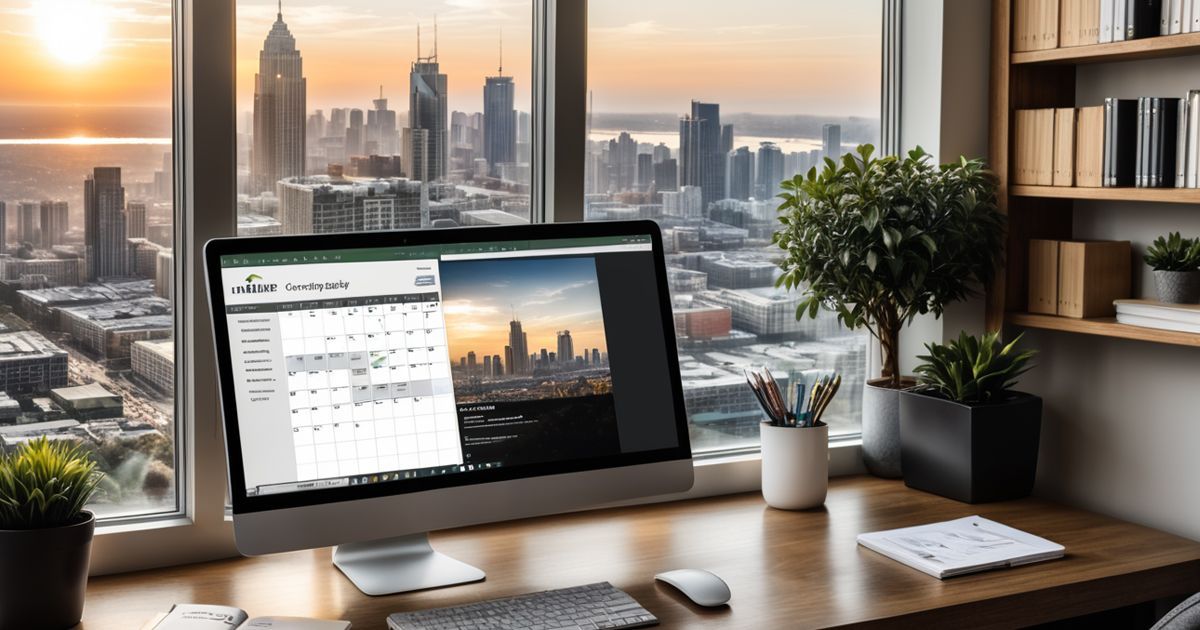
By Nick Dougherty
•
January 3, 2024
Discover the power of personal branding, email marketing, and more in this insightful discussion. Learn how to create authentic content, collaborate effectively, and take control of your marketing strategies. Join us for upcoming events and get inspired by success stories. Take action, believe in yourself, and find success in business and marketing.
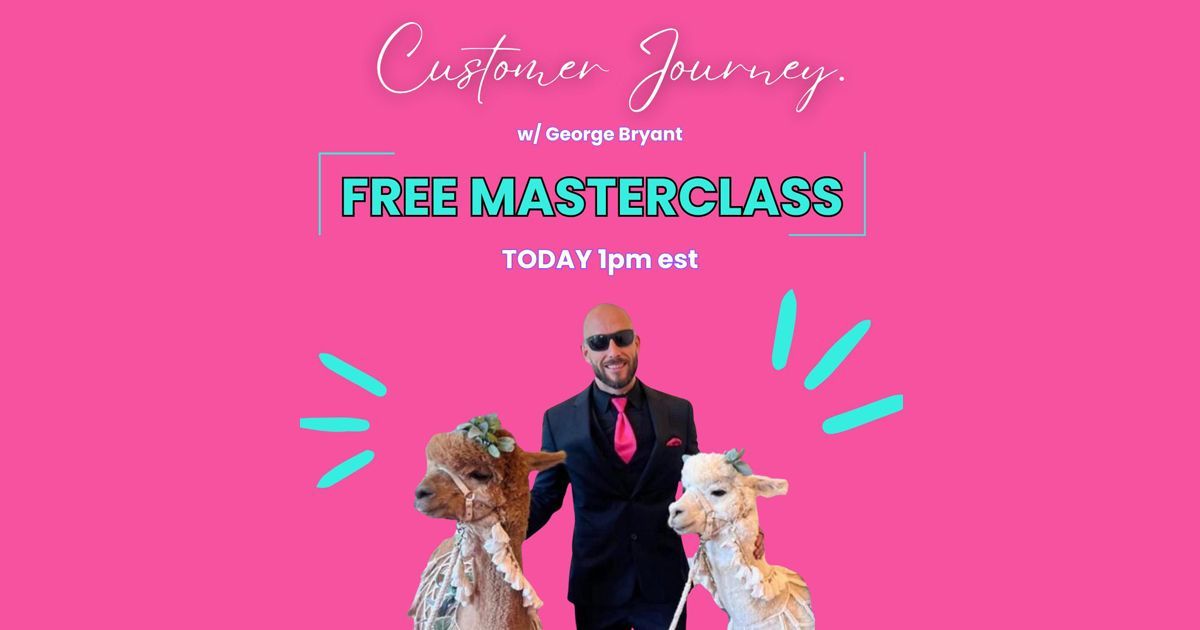
December 20, 2023
In yesterday's blog post, we discussed the importance of building strong relationships in business and how to create an effective customer journey. In this post, we'll explore the role of tangible results in the customer journey and why they are crucial for customer satisfaction and loyalty. The Power of Tangible Results When customers invest their time and money into a product or service, they expect to see tangible results. These results can be anything from achieving a specific goal or solving a problem to experiencing a transformation or improvement in their lives. Tangible results validate the value of your product or service and build trust and loyalty with your customers. Overcoming Obstacles in the Customer Journey In the customer journey, there are often obstacles that can prevent customers from achieving the desired results. These obstacles can be internal or external and may include fear, doubt, lack of knowledge, or competing priorities. As a business, it's important to identify these obstacles and provide the necessary support and resources to help customers overcome them. The Breakthrough Moment The breakthrough moment in the customer journey is when a customer overcomes the obstacles and achieves the desired results. This moment is crucial for building customer confidence, motivation, and loyalty. By celebrating and acknowledging the customer's progress and success, you can reinforce their commitment to your brand and encourage them to continue their journey. The Power of Progress While achieving the end goal is important, it's also essential to recognize the power of progress in the customer journey. Progress can be seen as small wins or milestones along the way that indicate the customer is moving in the right direction. By highlighting and celebrating these moments of progress, you can keep customers engaged, motivated, and committed to their journey. The Role of Support and Guidance To help customers achieve tangible results, it's important to provide ongoing support and guidance throughout their journey. This can include personalized recommendations, educational resources, regular check-ins, and access to a community or network of like-minded individuals. By offering support and guidance, you can empower customers to overcome challenges and stay on track towards their goals. The Importance of Continuous Improvement In the customer journey, continuous improvement is key. As a business, you should constantly evaluate and optimize your processes, products, and services to ensure they are delivering the desired results. This can involve gathering customer feedback, analyzing data, and making necessary adjustments to improve the customer experience. Putting it Altogether Tangible results play a crucial role in the customer journey. By helping customers overcome obstacles, celebrating their breakthrough moments, recognizing the power of progress, providing support and guidance, and continuously improving your offerings, you can create a customer journey that delivers tangible results and builds long-lasting relationships. Stay tuned for the next part of this blog series tomorrow, where we'll explore the power of storytelling in the customer journey.

December 19, 2023
Learn how to create an effective customer journey that drives engagement, loyalty, and revenue in our latest blog post. Discover the importance of defining your ideal customer and mapping out their journey to meet their specific needs. Don't miss out on optimizing touchpoints and interactions with your brand from discovery to purchase and beyond.

December 18, 2023
Unlock the potential of fostering robust business relationships! This blog emphasizes the tremendous significance of establishing connections with customers, prioritizing retention over acquisition. Explore the transformative influence of meaningful connections and propel your business to new heights! Discover the art of building customer relationships, fostering loyalty, and driving business growth.

By Nick Dougherty
•
August 21, 2023
Step into the captivating world of martial arts, where it's more than just honing skills and staying fit. Martial arts is a close-knit community that champions causes and spreads the values and wonders of this art form. One exciting avenue to achieve these aspirations is through martial arts fundraising events. These events go beyond ordinary gatherings. They are extraordinary occasions that unite us to raise funds for various martial arts-related purposes. From acquiring new equipment to granting scholarships to talented students, from supporting charities to helping community members in need, these events make a significant impact. They also provide a valuable opportunity to showcase our martial arts school or service, highlighting the incredible talents of our participants and engaging potential customers. In this blog post, we will delve deep into the realm of martial arts fundraising events. We will guide you through planning and organizing a successful event, inspire you with unique and effective fundraising ideas, and show you how to promote your event in ways that resonate with your community. Moreover, we will explore the power of online media in amplifying exposure, provide insights on measuring and enhancing your fundraising results and marketing impact. By implementing these strategies, you will create an impactful martial arts fundraising event that not only generates funds but also strengthens your brand and fosters a sense of community. Let's make a difference together, fueled by the extraordinary power of martial arts! How to Plan and Organize a Successful Martial Arts Fundraising Event Pulling off a kick-ass martial arts fundraising event takes careful planning, smart decision-making, and nailing the execution. Check out these steps and tips to guide you through the process like a boss! Setting Goals and Budget for Your Event When it comes to organizing a successful event, the first step is to define your goal. What do you want to achieve with this event? Are you aiming to raise funds for new equipment, offer scholarships, or support a local charity? Having a clear objective will not only guide your planning but also help you assess your success. Next up, it's crucial to determine your budget. How much money do you need to raise, and how will you allocate these funds? It's important to keep track of all your expenses and income, including venue costs, materials, ticket sales, and donations. Having a detailed budget will help you effectively manage your finances and ensure the profitability of your event. By setting clear goals and having a well-defined budget, you can optimize your event planning process and improve its overall success. Selecting Your Target Audience and Ideal Venue Your target audience refers to the specific group of people you want to engage and attract to your event. This could include your students and their families, other martial arts schools, potential customers, or even the local community. Knowing your audience helps you customize your event to match their interests and needs. Another important aspect is choosing the right venue. You need a place that's big enough for your guests and activities, and easy to get to. Make sure it fits the style and theme of your event. Don't forget about practical stuff like parking, restrooms, and setting up equipment. It's all about making sure everything goes smoothly! Recruiting Participants and Volunteers for Your Event The success of your event heavily depends on the active participation of your students, staff, and incredible volunteers. Encourage their involvement through captivating demonstrations, performances, and competitions that showcase the talents and values of your school. Recruiting volunteers from your school, family, friends, and local community is crucial. Provide clear instructions and adequate training to ensure their seamless execution of every aspect, from setup to cleanup. By actively engaging everyone, your event will undoubtedly create a remarkable experience, leaving a positive and lasting impression on all attendees. Join us for an unforgettable event that celebrates our school's talents and values! Promote Your Event Promoting your event effectively is crucial for attracting supporters and attendees. Utilize various channels and strategies to spread the word. You can distribute flyers, create engaging social media posts, send informative email newsletters, issue press releases, and generate buzz! Emphasize the unique benefits and fun aspects of your event, such as martial arts demonstrations, incredible performances, charitable causes, and delicious food and games. By following these practical steps and helpful tips, you can plan and organize a successful martial arts fundraising event. Achieve your goals, engage your target audience, showcase your school, and connect with the community. Let's make it happen! How to Choose and Implement Creative and Effective Fundraising Ideas Selecting and implementing creative and impactful fundraising ideas is crucial for the success of your event. Consider these key criteria and factors when choosing and executing your fundraising strategies. Elevate your event's success with effective fundraising ideas. Relevance and Appeal Make sure your idea is in line with your school's mission, vision, and values. It should connect with your target audience and their interests, needs, and preferences. For instance, if your school emphasizes self-defense, organizing a fundraising event that promotes personal safety and empowerment would be highly relevant and attractive. Feasibility and Profitability When evaluating your idea, it's important to consider its feasibility in terms of time, resources, and skills. Assess whether you have the necessary support and capabilities to execute it successfully. Additionally, evaluate the potential profitability by estimating the revenue it can generate and comparing it to the expenses and effort required. Taking these factors into account will help you make informed decisions and maximize your chances of success. Innovation and Differentiation Select innovative and distinct ideas. Strive for originality, novelty, and uniqueness to captivate and engage your audience. Stand out from other fundraising initiatives by offering a compelling value proposition, highlighting competitive advantages, and delivering a one-of-a-kind experience. Optimize your event for SEO purposes by incorporating relevant keywords and phrases, ensuring readability and search engine visibility. Explore the below cutting-edge and innovative fundraising ideas specifically designed for martial arts schools. Exhibition Matches, Demonstrations, or Clinics Host special martial arts events, including matches, demos, and clinics, featuring skilled instructors and students showcasing their techniques. Invite participants and spectators to attend these exciting events, while charging reasonable admission fees. This innovative approach not only helps generate funds but also promotes your school's expertise, attracting potential students. Experience the thrill of martial arts at our engaging and educational showcases! Kick-a-thons, Board-breaking Contests, or Challenges Motivate your students and community members to take part in engaging activities like kick-a-thons and board-breaking contests. These physically demanding challenges offer an opportunity to collect pledges or donations based on their performance. By promoting physical fitness, discipline, and fundraising, this idea can make a significant impact on your cause. Get involved today! Dinners, Auctions, or Raffles Organize fundraising dinners, auctions, or raffles where guests can indulge in a delicious meal, bid on exclusive items or experiences, or buy raffle tickets for a shot at winning exciting prizes. This concept seamlessly blends food, entertainment, and the thrill of winning, making it an appealing choice for supporters. Discover how you can contribute to our cause through these captivating events! How to Promote Your Event and Reach Out to Your Community To successfully promote your martial arts fundraising event and connect with your community, it's crucial to increase awareness, attendance, and support. Here are some valuable tips to effectively promote your event and engage with your community: Utilize a variety of channels such as flyers, posters, banners, newsletters, emails, social media posts, and website announcements to spread the word about your event. Make sure your messages are clear, compelling, and visually appealing. Create a catchy slogan or hashtag that captures the purpose, value, or benefit of your event. This will help generate excitement and make it easier for people to remember and share information about your event on social media platforms. Highlight the positive impact and benefits of supporting your event by leveraging testimonials or success stories from previous events or participants. Personal stories can be incredibly powerful in inspiring others to get involved. Reach out to local businesses, organizations, media outlets, influencers, and community leaders who share your cause or target audience. Ask them to sponsor, endorse, or publicize your event through their networks. Building relationships with these stakeholders can significantly enhance your event's visibility and credibility. Regularly monitor and evaluate the effectiveness of your promotional efforts. Make necessary adjustments to your strategies and leverage any feedback or insights gained to improve future events. By implementing these strategies, you can optimize the promotion of your martial arts fundraising event and ensure its success in connecting with your community. How to Leverage Online Media for Maximum Exposure By leveraging various online platforms like websites, blogs, podcasts, videos, and social media, you can effectively promote your event and reap numerous benefits. Let's explore some of the advantages that come with utilizing these digital avenues to amplify the reach of your event: Expanded Audience Reach Online media provides a platform to connect with a broader audience beyond your local area. It enables you to engage potential supporters interested in your martial arts school or cause, regardless of their geographic location. Enhance your reach and visibility through effective online strategies to attract and engage interested individuals. Join our martial arts community today! Engaging Content Creation Online media gives you a range of options to create captivating content that showcases your martial arts skills, talents, values, or stories. With blogs, videos, podcasts, and social media posts, you can engage your audience and get them excited about your event. Interaction and Engagement Online media platforms make it easy to directly interact with your audience before, during, and after the event. You can respond to comments, answer questions, and get valuable feedback, creating a real sense of community and connection. To maximize exposure for your martial arts fundraising event using online media, consider the following examples: Create a Dedicated Website Consider creating a dedicated website or landing page specifically for your event. If you happen to have my software, "Winterbourne Engage Software," you can even make your own landing page. Don't forget to include all the important details like the date, time, and location. It's also a good idea to mention your event goals, agenda, registration, and even options for donations. Oh, and one more thing - make sure to optimize the website so it can easily be found by search engines and get more visibility. Good luck! Craft Compelling Blog Posts or Podcast Episodes Want to create captivating content that shines a spotlight on the purpose, benefits, or impact of your event? Share it on your website and spread the word through social media and email campaigns. How about featuring guest bloggers or inviting influential podcast guests in the martial arts or fundraising realm? Let's make your event buzz with excitement! Capture the Event with Videos: Hey, why not record and edit some awesome videos to showcase all the highlights, behind-the-scenes moments, and testimonials from participants and attendees? Then, let's upload these videos to platforms like YouTube and share them on social media. Oh, and don't forget to encourage participants to share the videos with their networks, so we can expand the reach of your event! Maximize the Potential of Social Media Maximize the potential of popular social media platforms such as Facebook, Instagram, Twitter, and LinkedIn. Share regular updates, captivating photos, engaging videos, or even captivating live streams to promote your event. Enhance visibility and audience interaction by incorporating relevant hashtags and tags. Consider leveraging targeted paid ads to expand your reach even further. Let's harness the power of social media together and ensure that your martial arts fundraising event achieves remarkable success! How to Measure and Improve Your Fundraising Results and Marketing Impact How to Measure and Improve Your Fundraising Results and Marketing Impact To ensure the success of your fundraising efforts, it is crucial to measure and enhance your results and marketing impact. Here are some key metrics, tools, and suggestions to consider: Metrics for Fundraising Results: Total Funds Raised: Measure the amount of money raised from your event. Compare it to your predetermined goal and budget to evaluate performance. Revenue and Expense Sources: Identify the sources of revenue (donations, sponsorships, ticket sales) and expenses (venue, supplies, marketing). Analyze their costs to pinpoint areas for improvement. Metrics for Marketing Impact: Reach and Exposure: Determine the number of people reached through your event. Track website traffic, social media engagement, and email campaign statistics to gauge your reach. Brand Awareness and Loyalty: Assess how your event increased brand awareness, reputation, and loyalty. Monitor social media mentions, follower growth, and feedback from attendees to understand the impact on your brand. Testimonials and Referrals: Collect feedback, testimonials, or referrals from customers or prospects. Analyze their quality and quantity to evaluate the effectiveness of your marketing efforts. Suggestions for Improvement: Analyzing Data and Feedback for Fundraising Events To improve the effectiveness of your fundraising events, it's crucial to evaluate the strengths and weaknesses of your event. This can be done by reviewing data, attendee feedback, and customer testimonials. By doing so, you'll gain valuable insights that can help you identify opportunities and threats, which can inform your future strategies. Implementing Changes and Improvements Based on your analysis, it's important to make adjustments for your next event. Consider changes in marketing channels, messaging, event structure, or fundraising tactics to enhance results and make a greater impact. By continuously improving and adapting your strategies, you'll be able to optimize the outcomes of your fundraising events. Continuously Learning and Adapting To refine your strategies, it's essential to apply best practices and lessons learned from previous events. Stay updated on industry trends, explore new marketing tools, and understand your target audience's preferences. By staying proactive and adaptive, you'll be able to stay ahead in the competitive landscape. Measuring and Analyzing Results Measuring fundraising results and marketing impact is crucial for identifying areas for improvement and making informed decisions moving forward. By analyzing data and feedback, you can optimize your fundraising efforts and make necessary adjustments to achieve better outcomes. Putting it altogether In this blog post, we learned how to measure and improve fundraising results and marketing impact for martial arts schools. We explored metrics and tools for tracking funds raised, comparing them to goals and budgets, analyzing revenue sources and expenses, as well as measuring reach, brand awareness, and testimonials. Fundraising events offer numerous benefits for martial arts schools, including raising funds for equipment, programs, and community outreach. They also help increase brand awareness, reputation, and loyalty among attendees. To enhance your fundraising efforts, take action by analyzing your data and feedback, identifying strengths and weaknesses, and implementing changes or improvements for future events. Continuously learn from best practices and lessons learned, and adapt your strategies accordingly. If you have any further questions or need more information, please don't hesitate to leave a comment below. Let's work together to make your fundraising events a resounding success!











